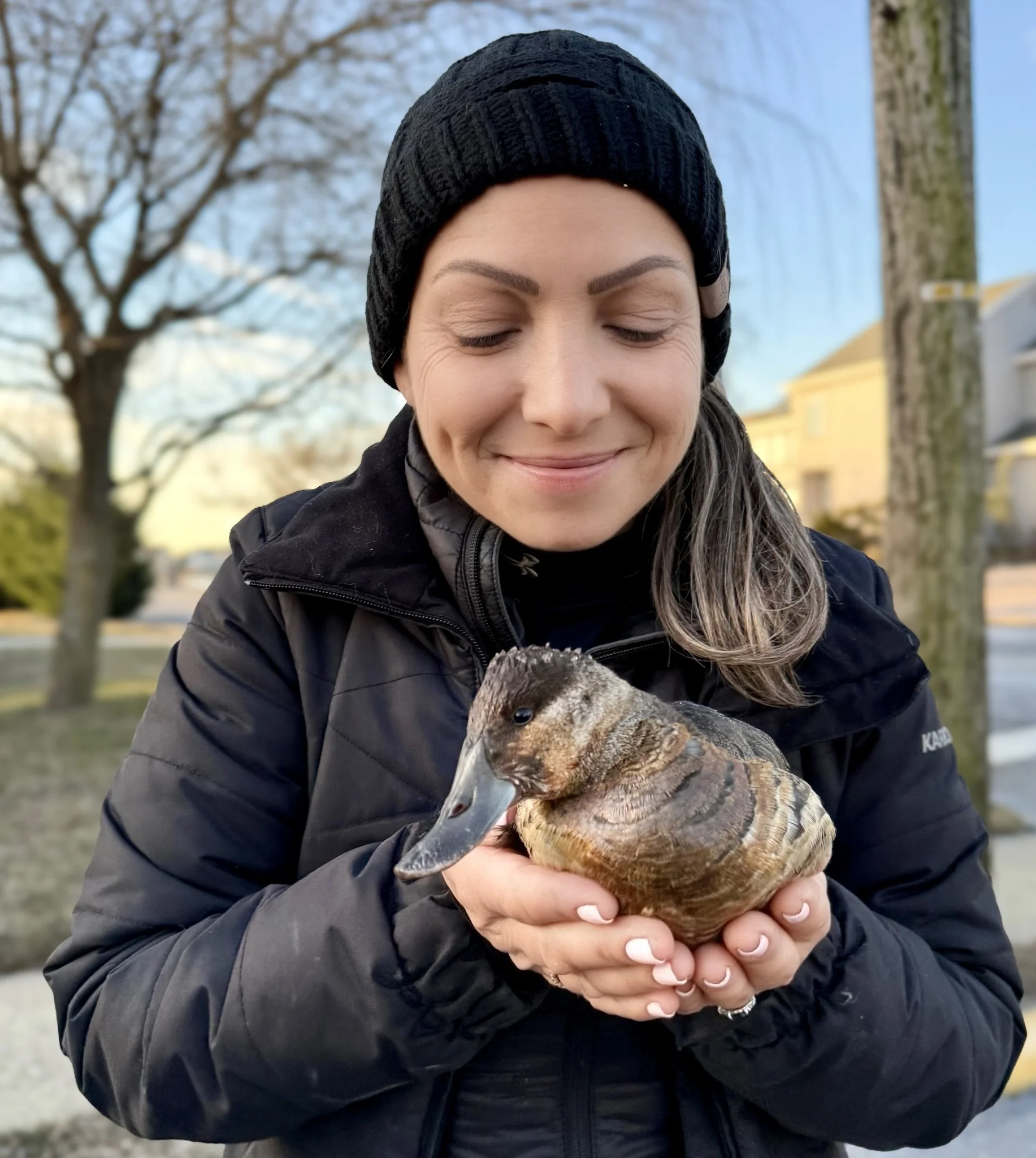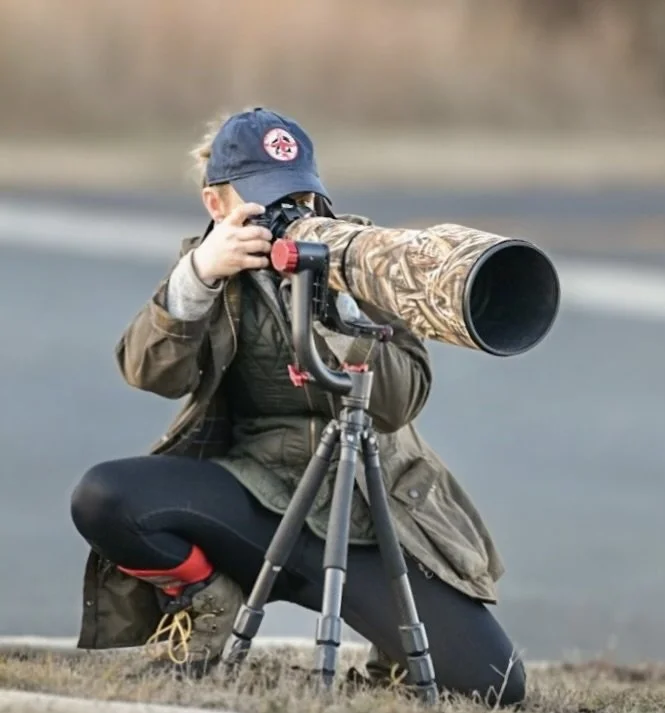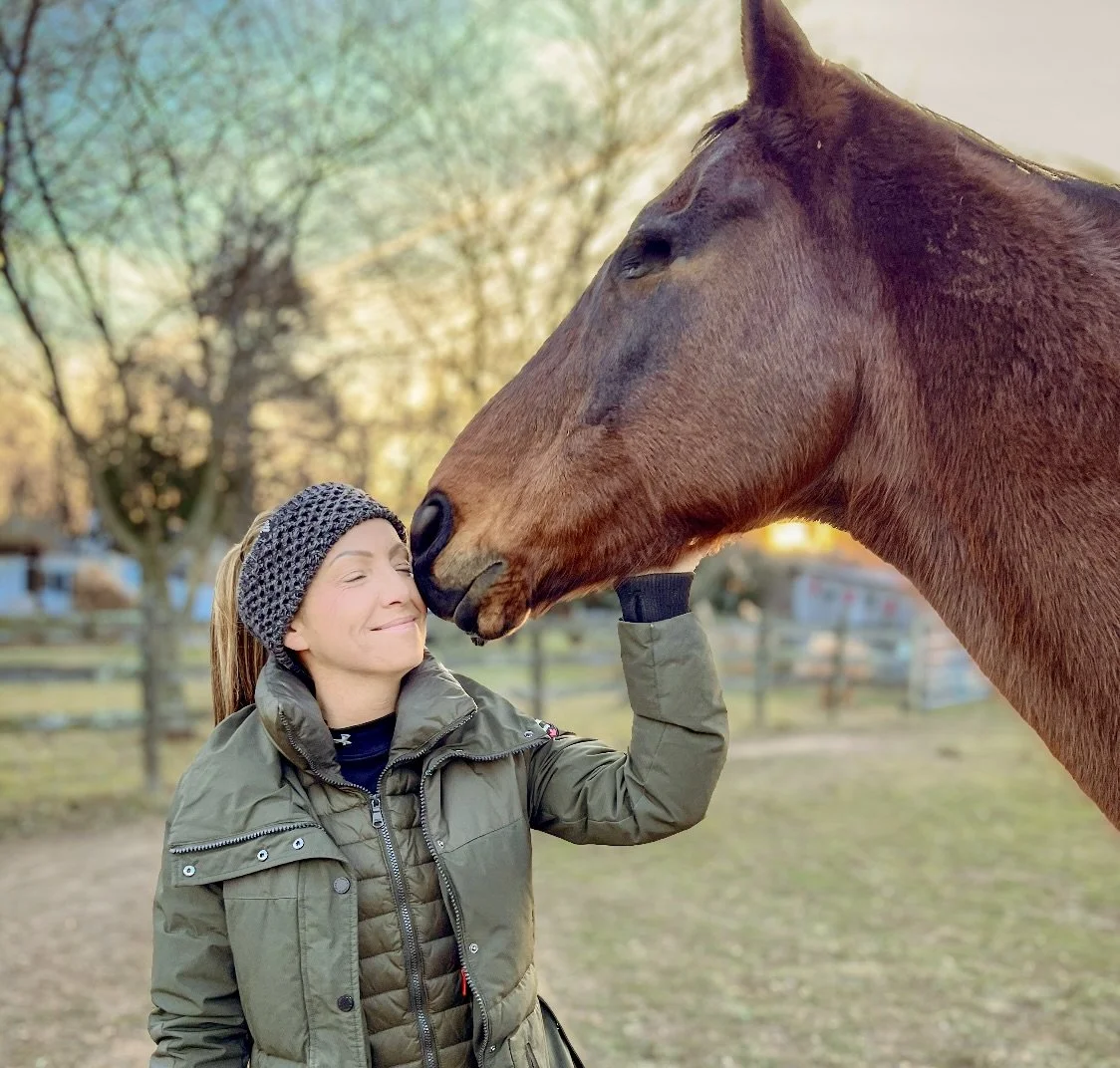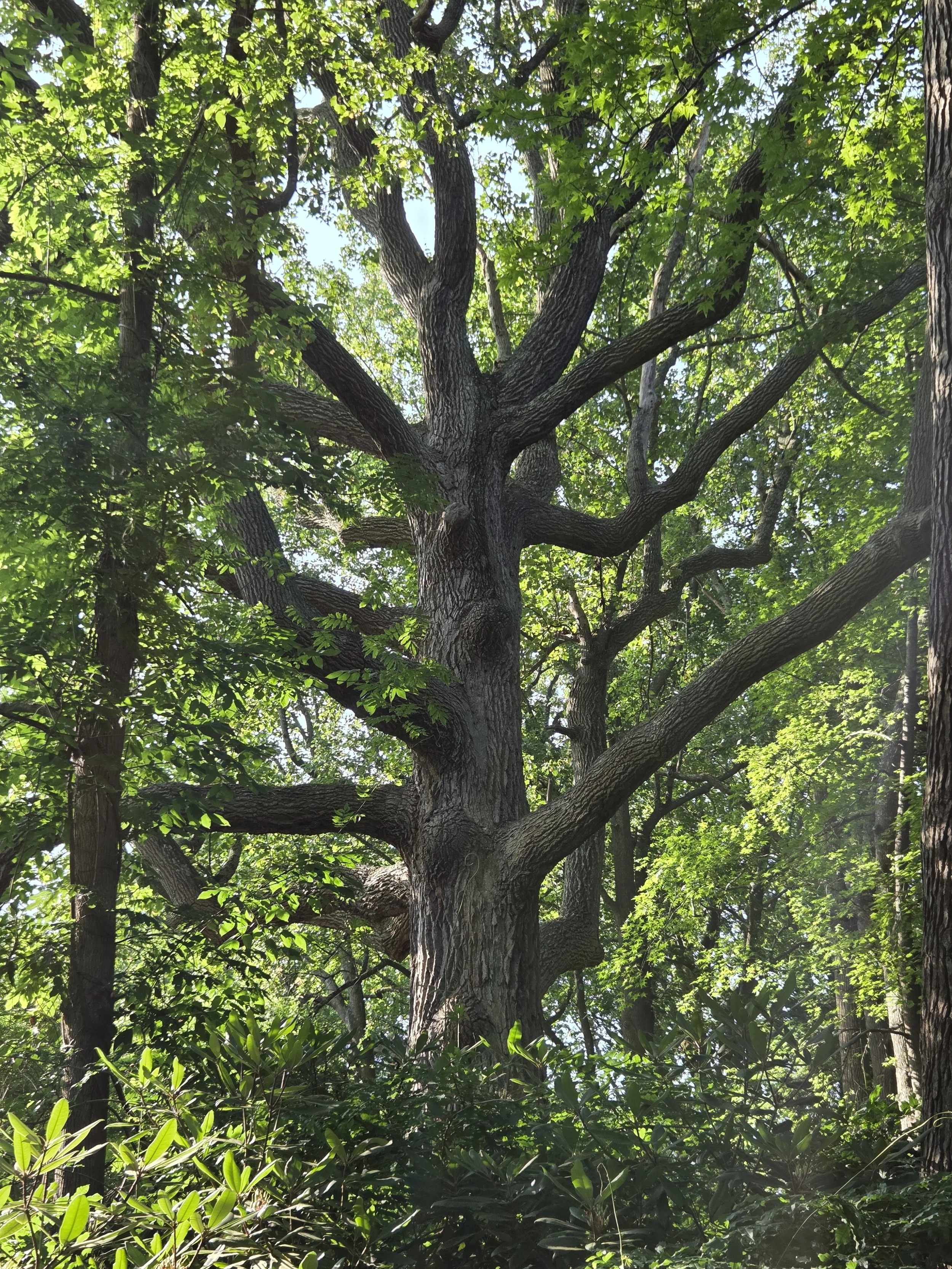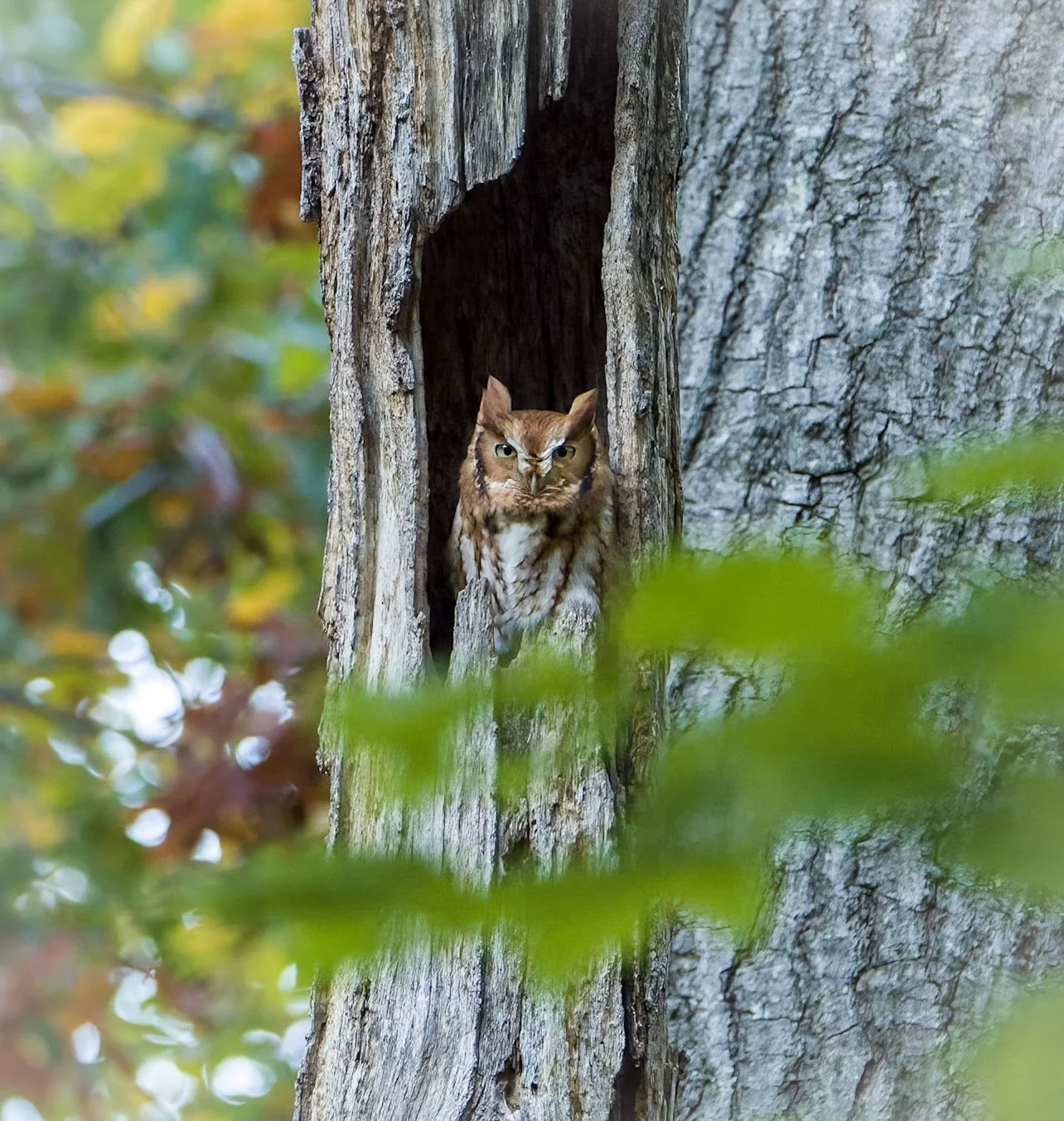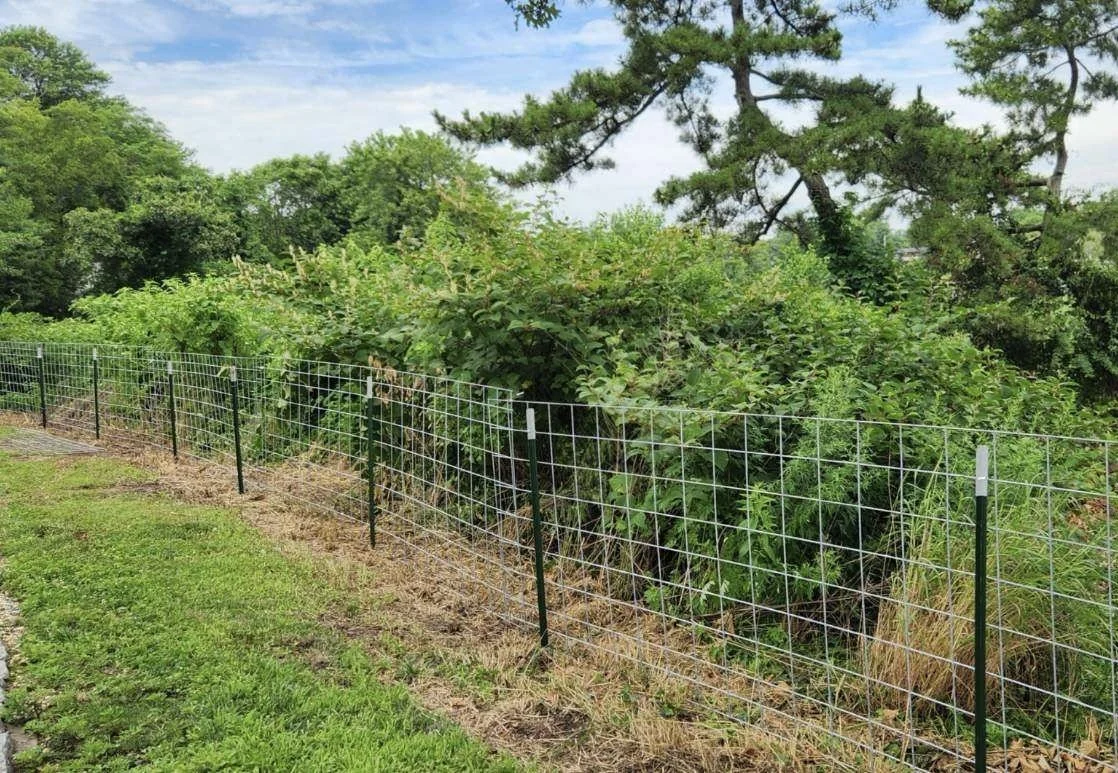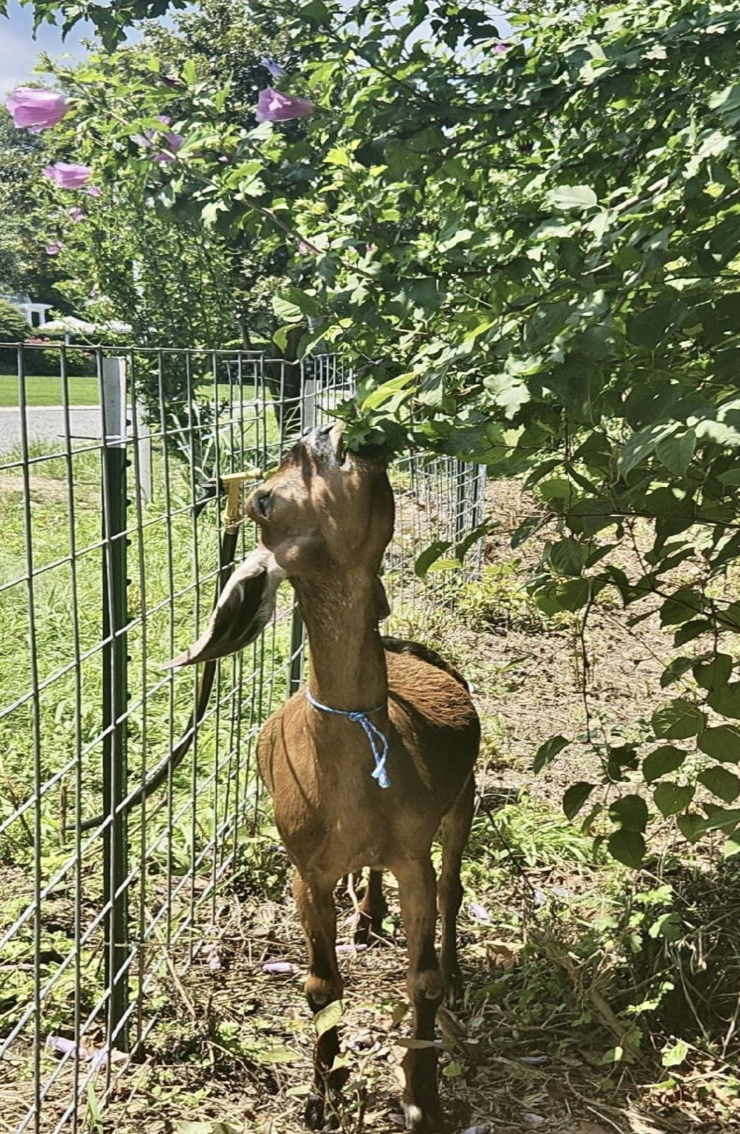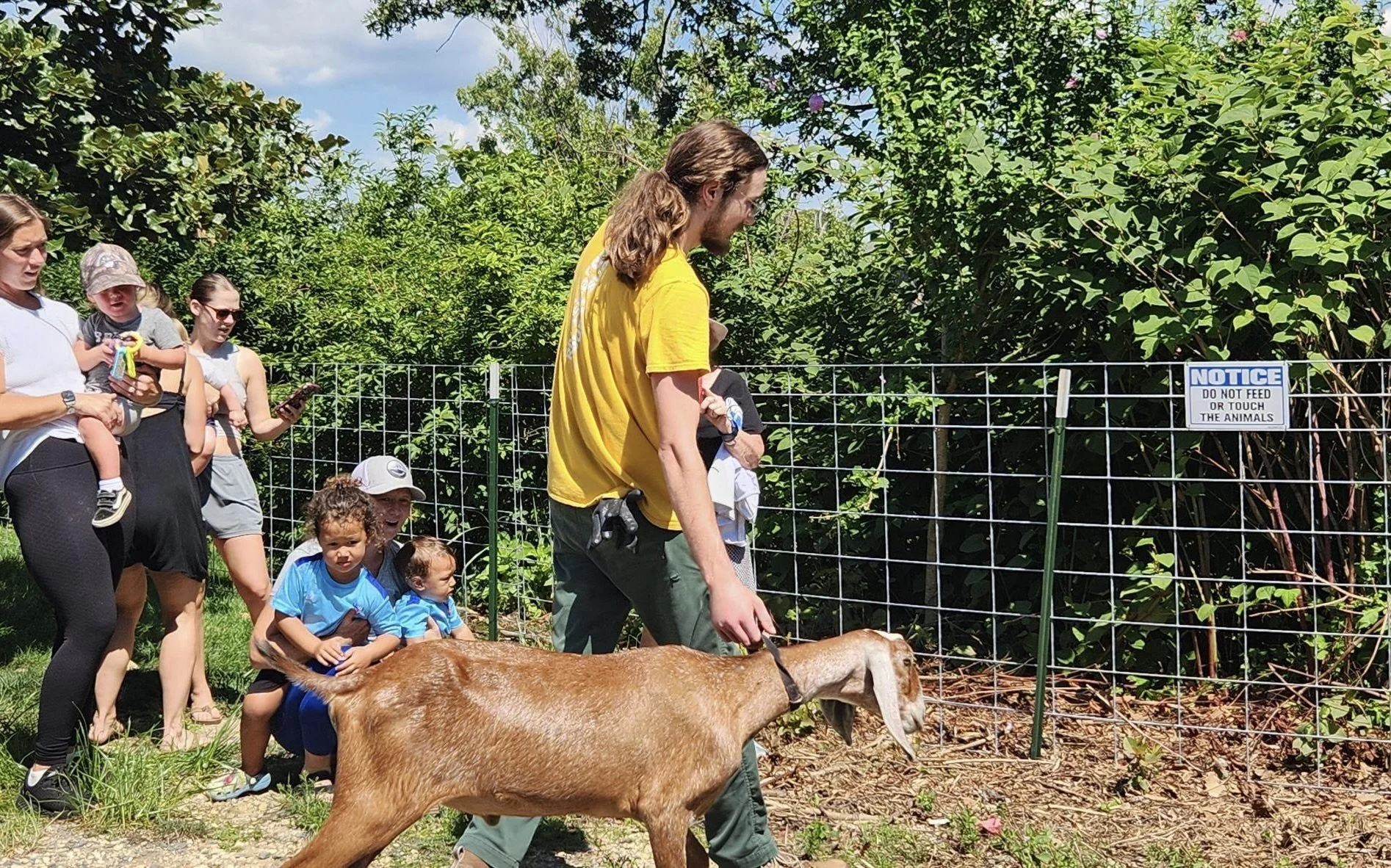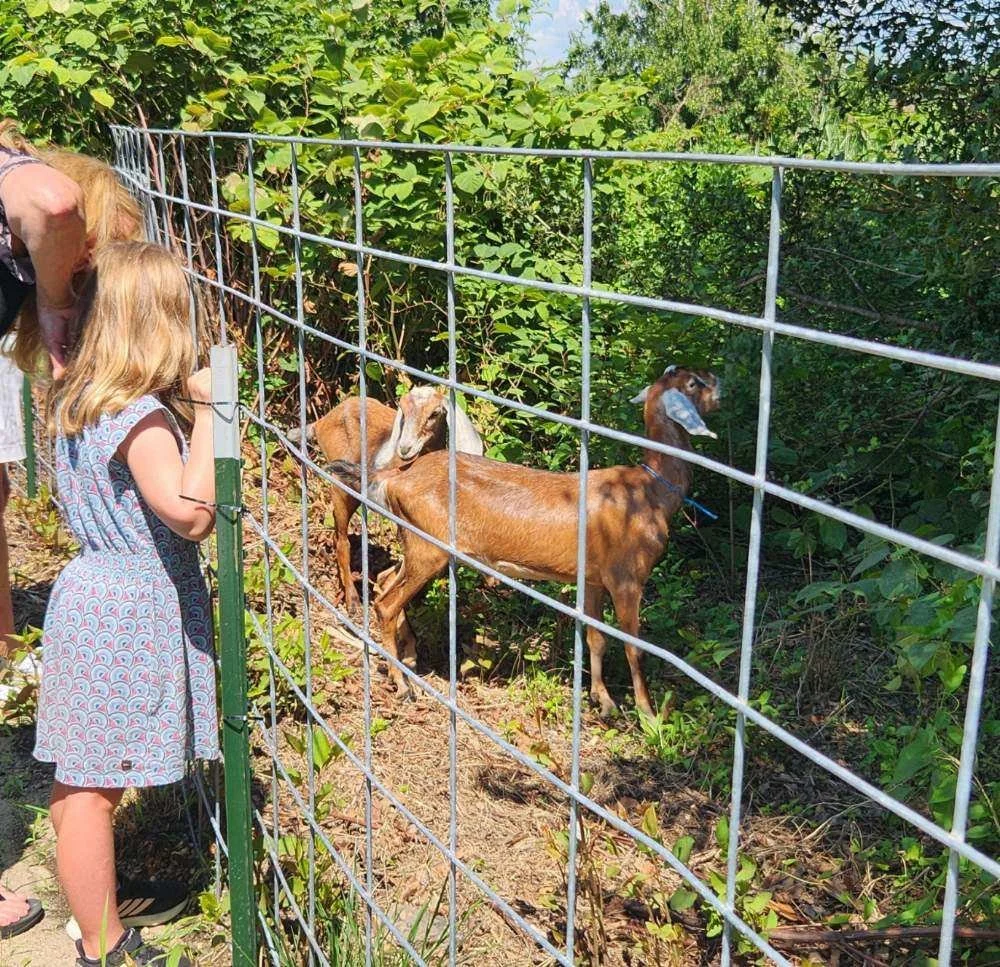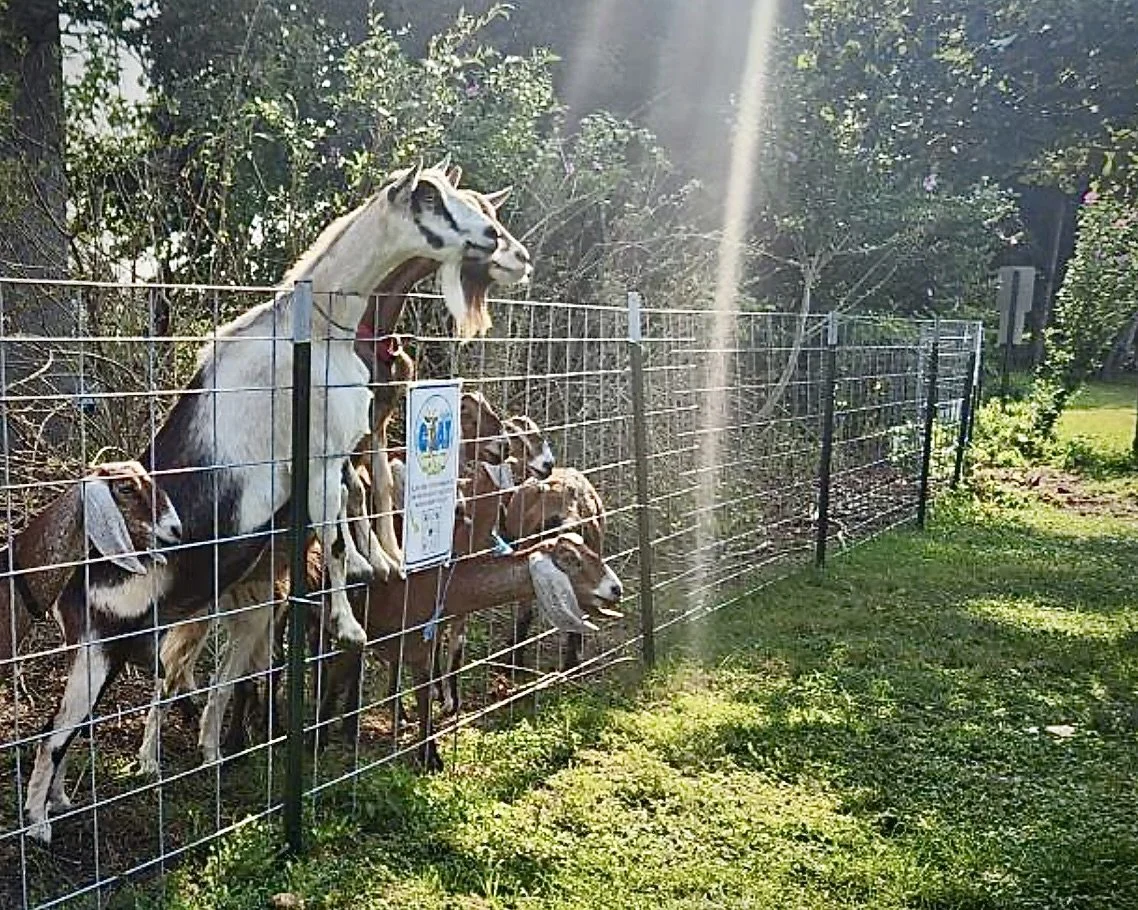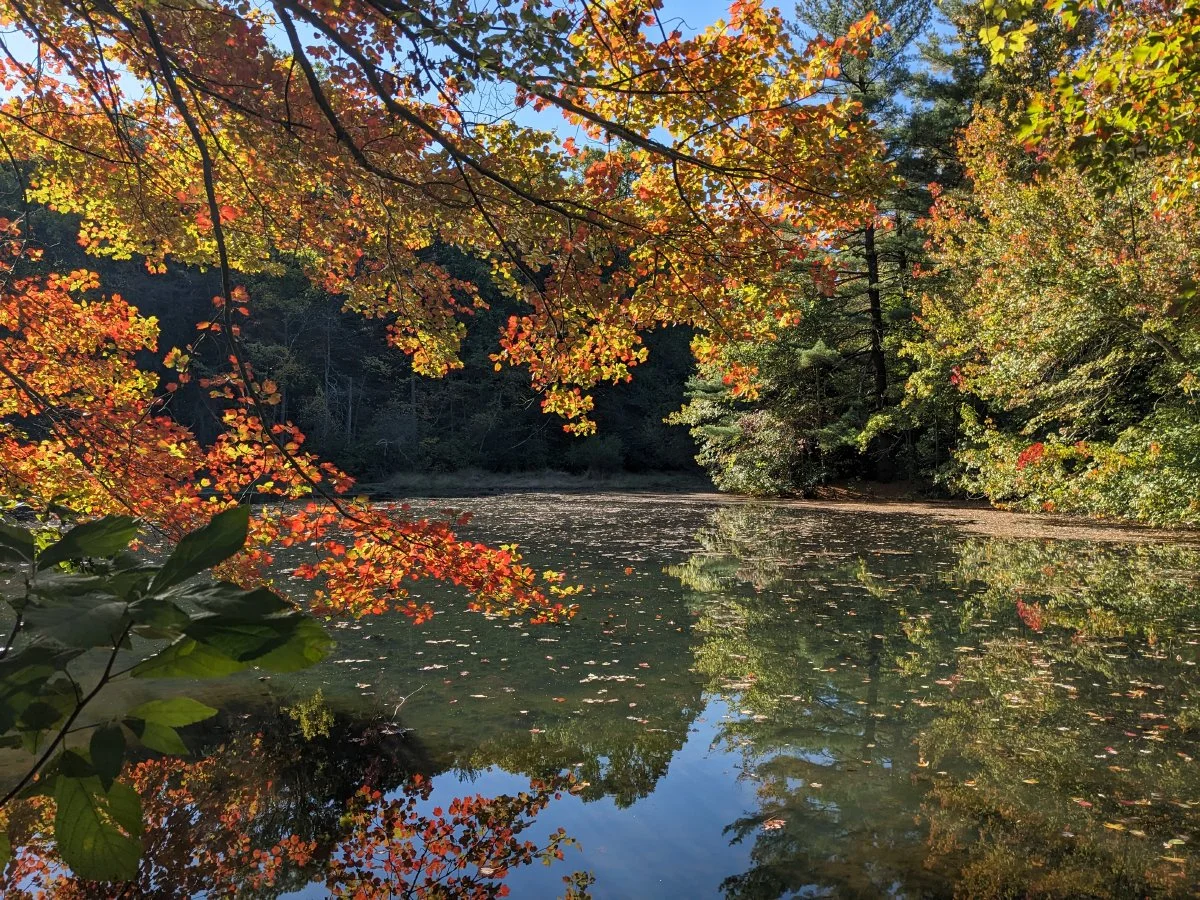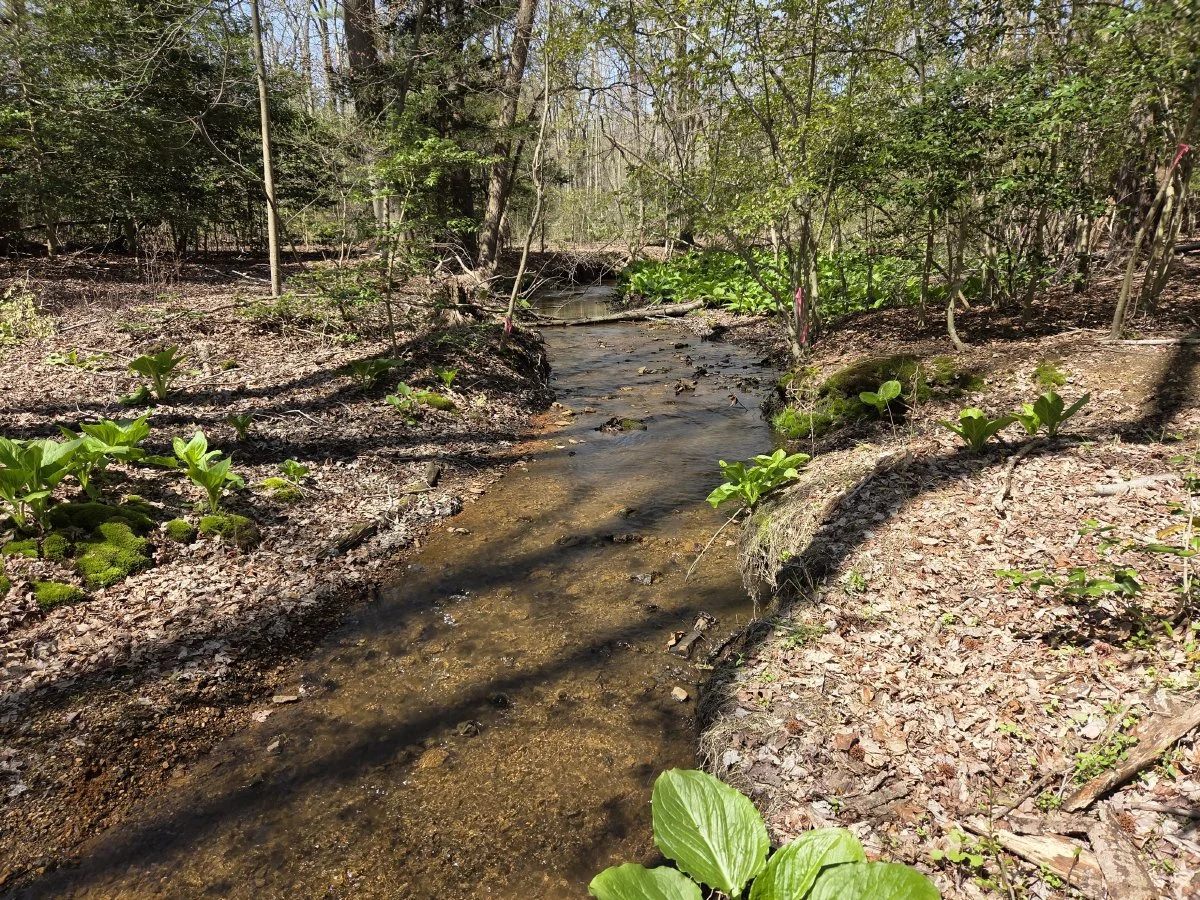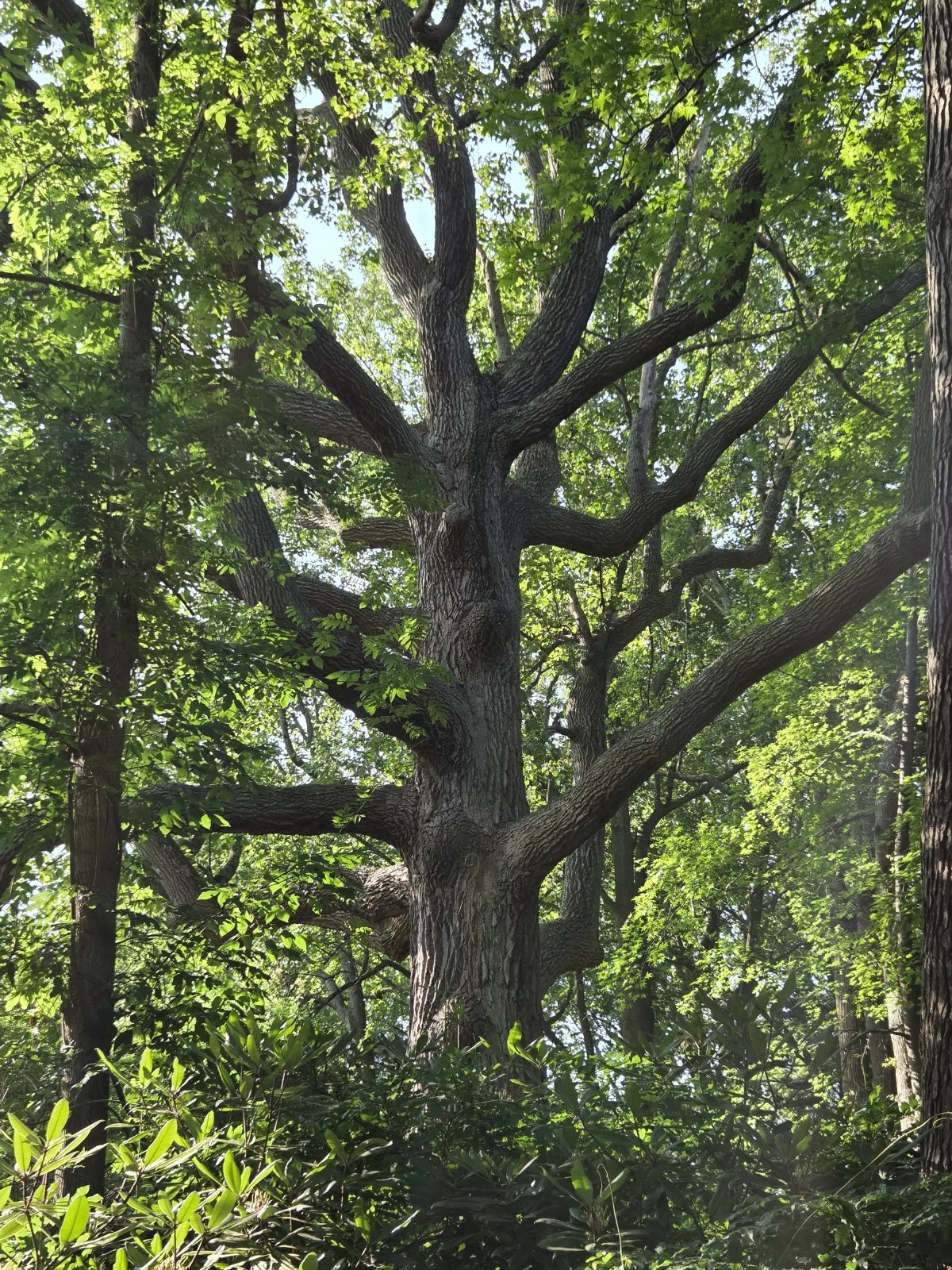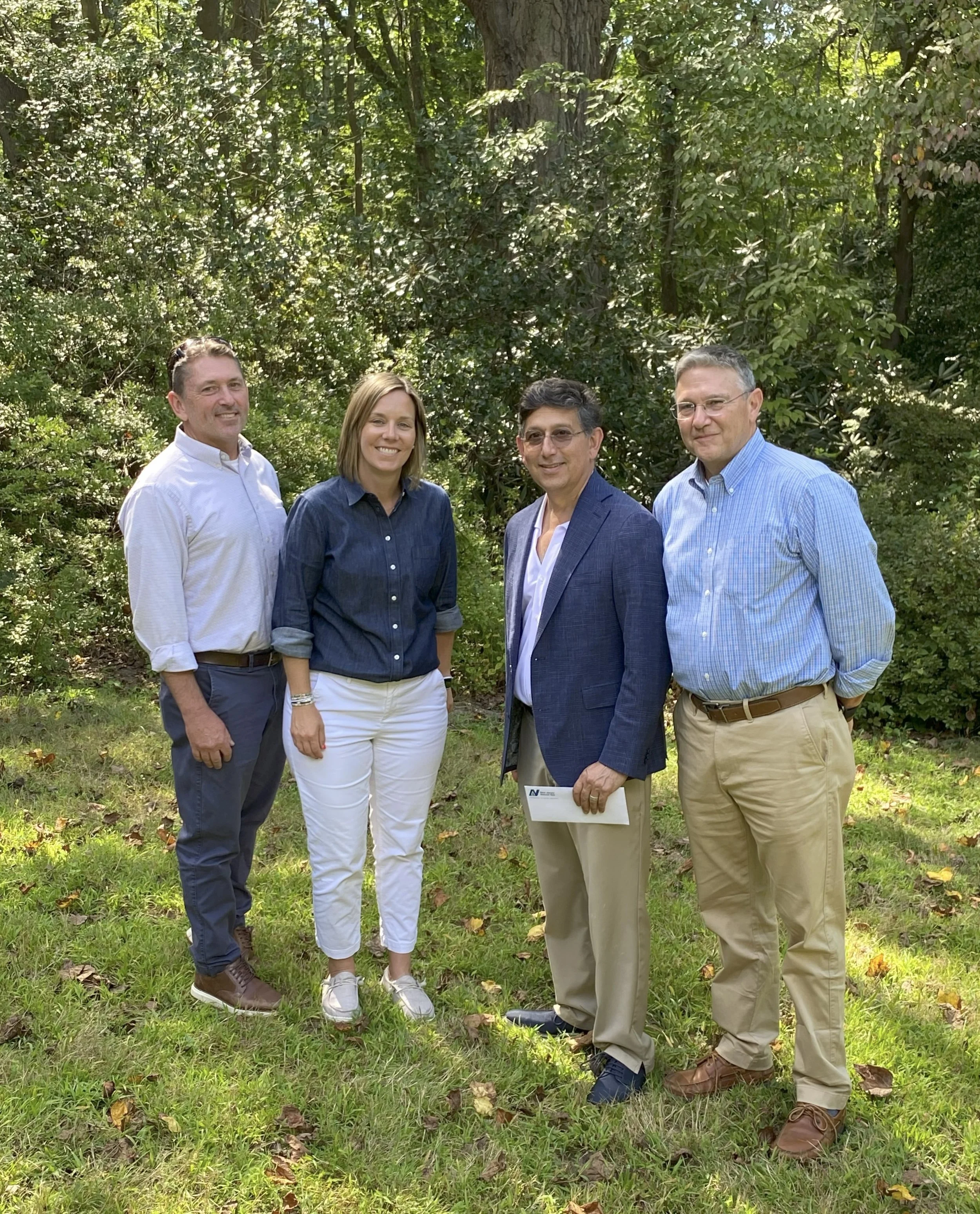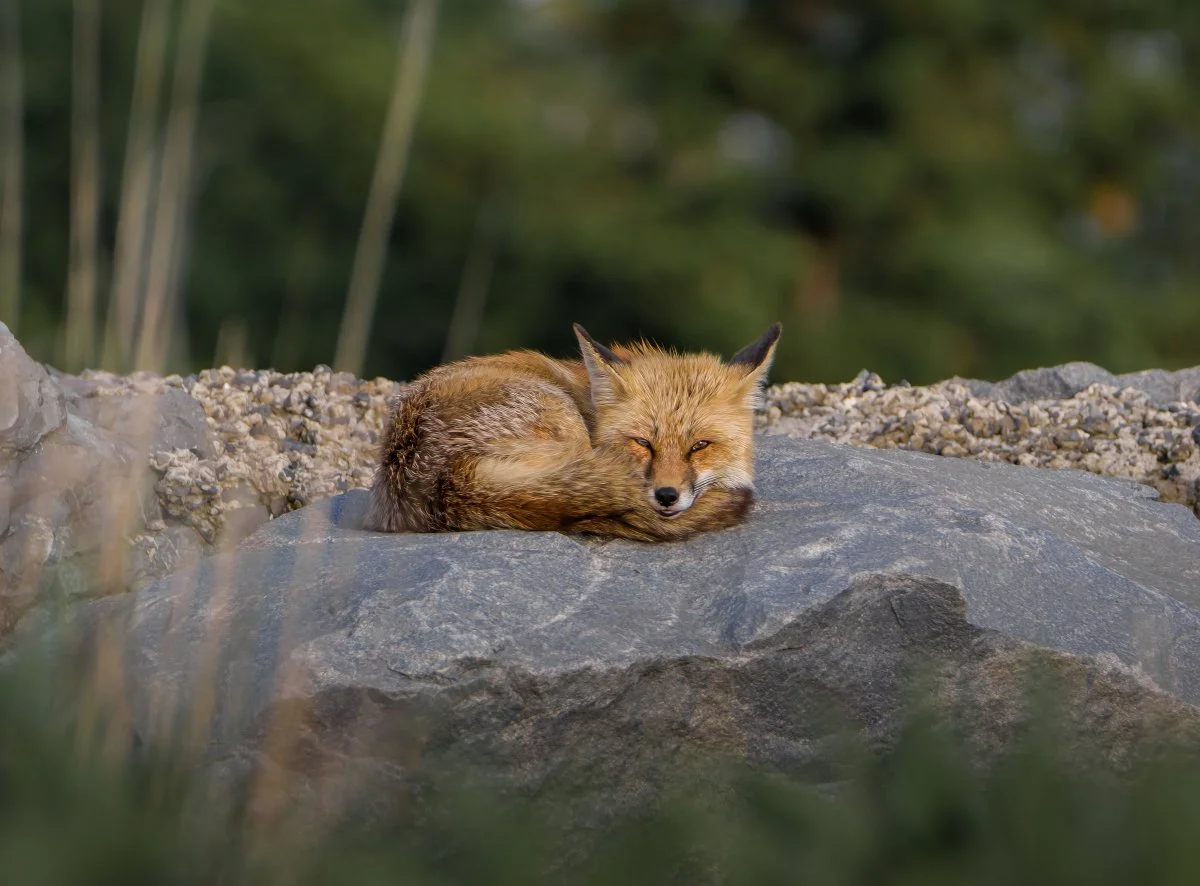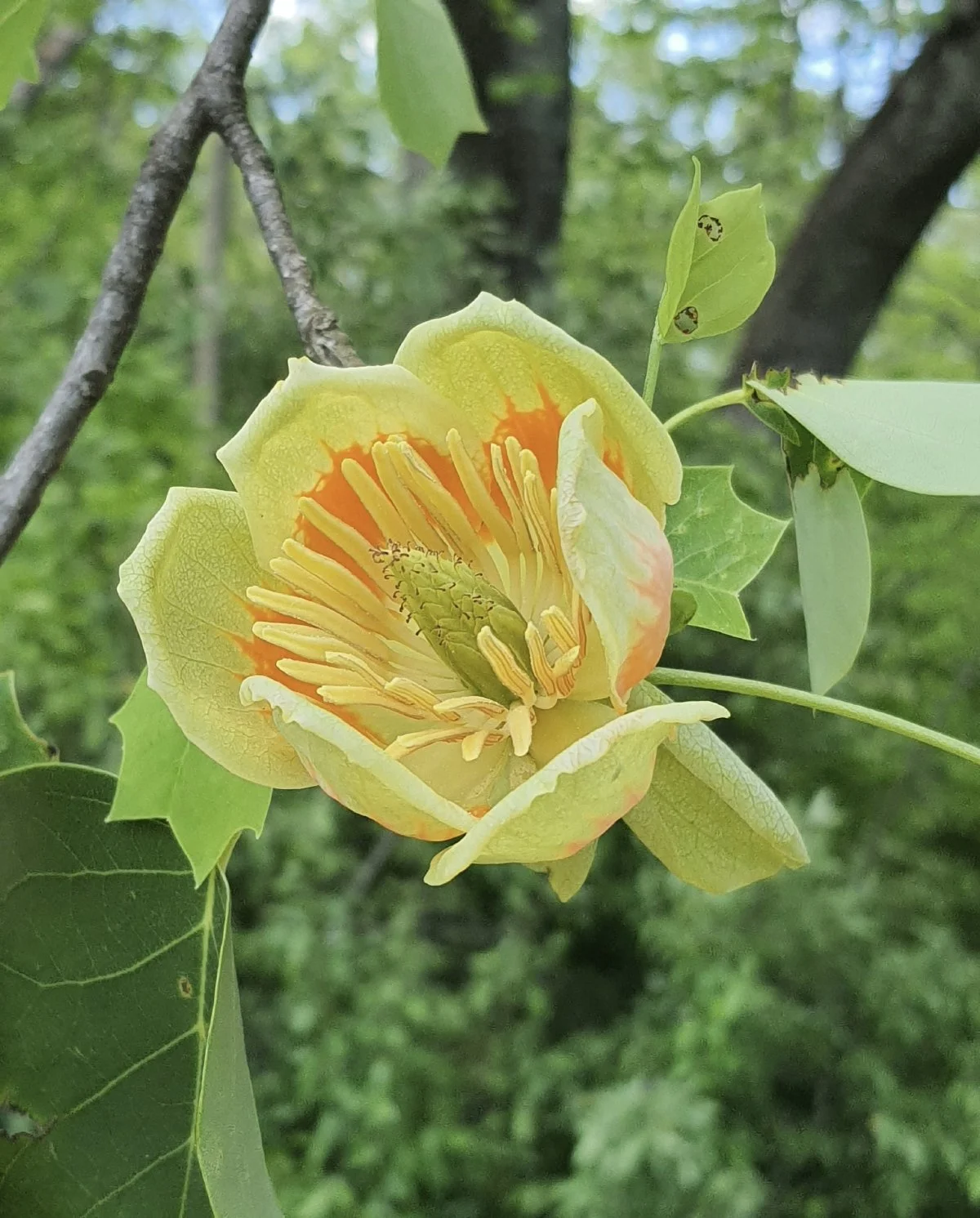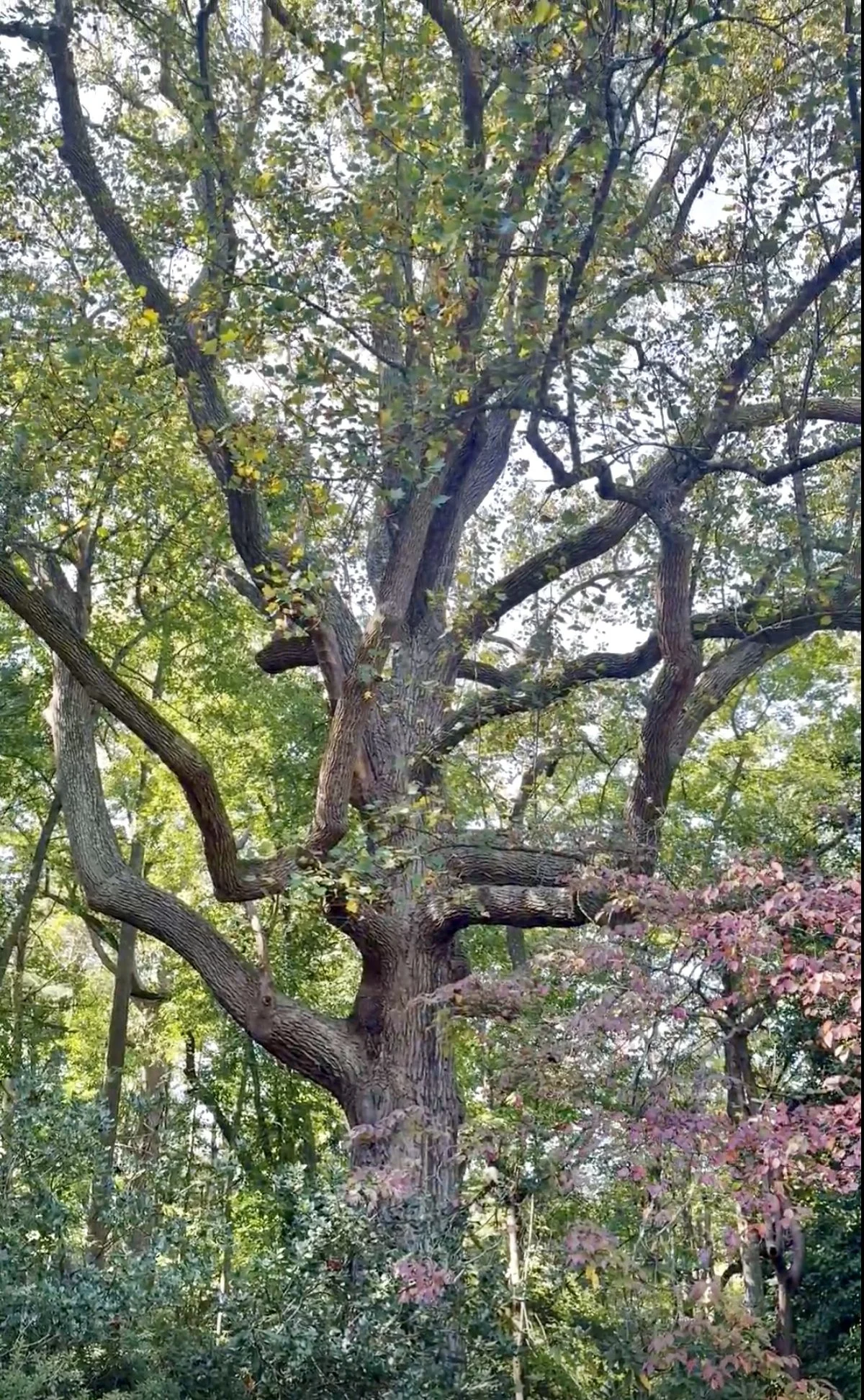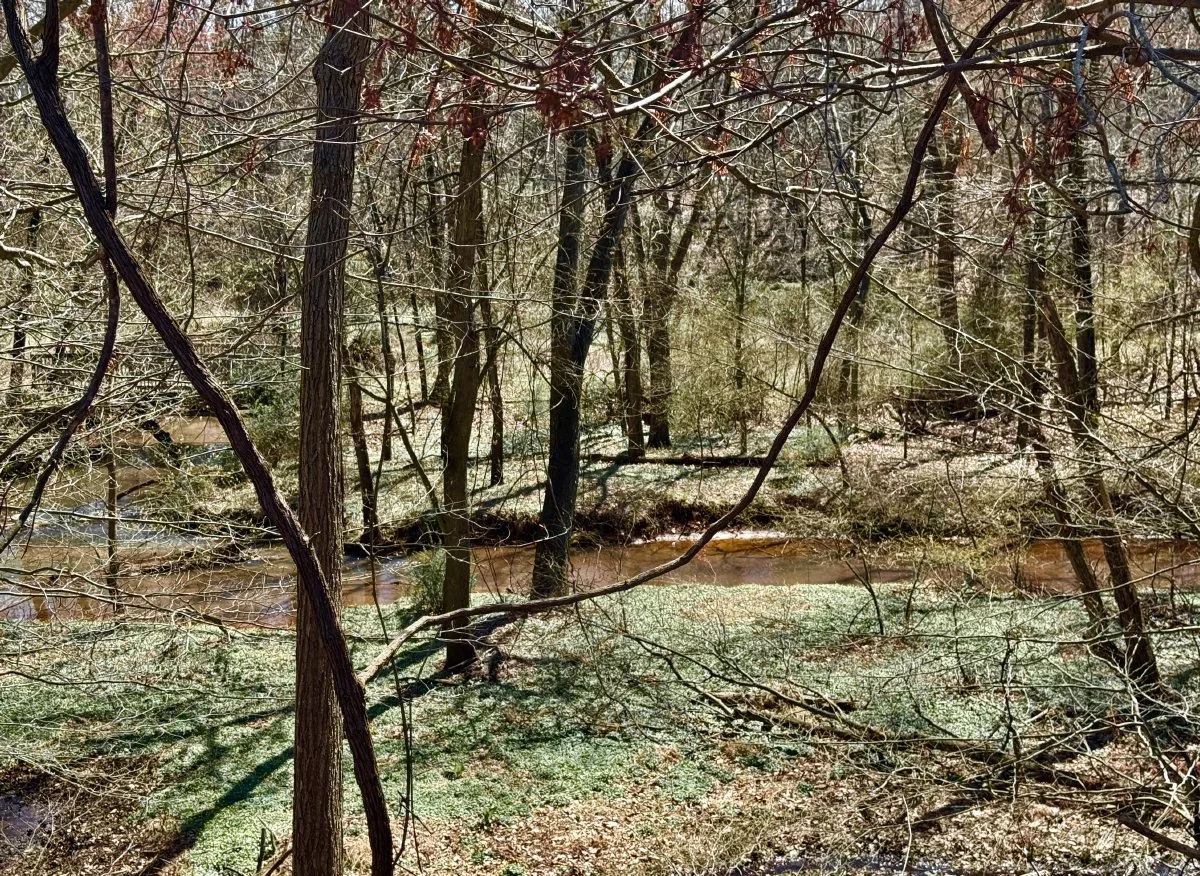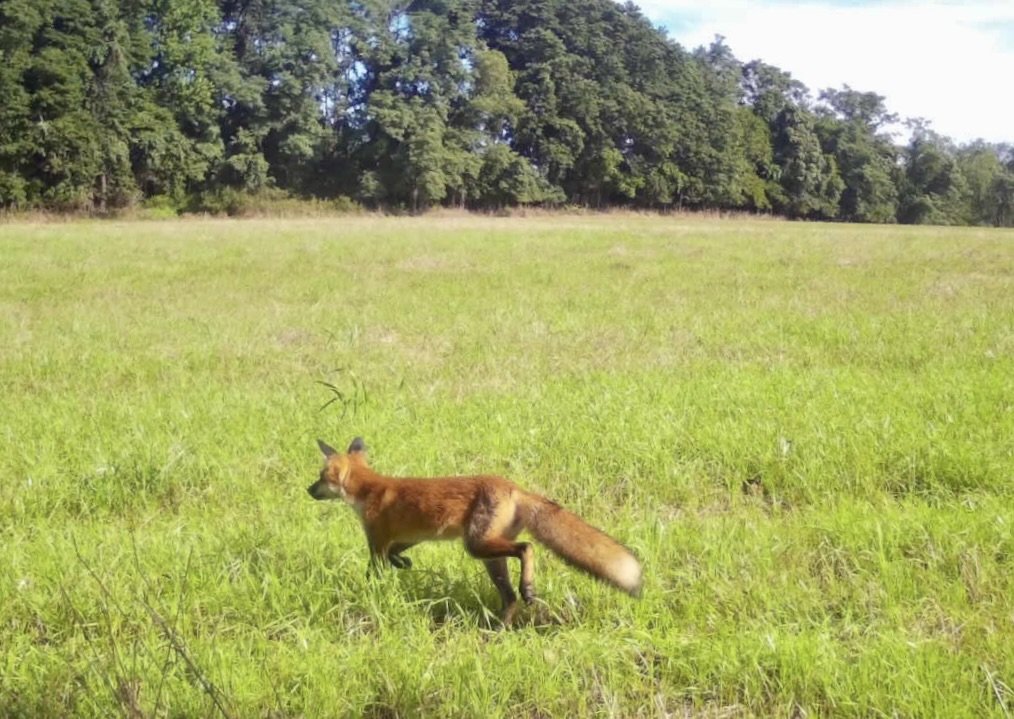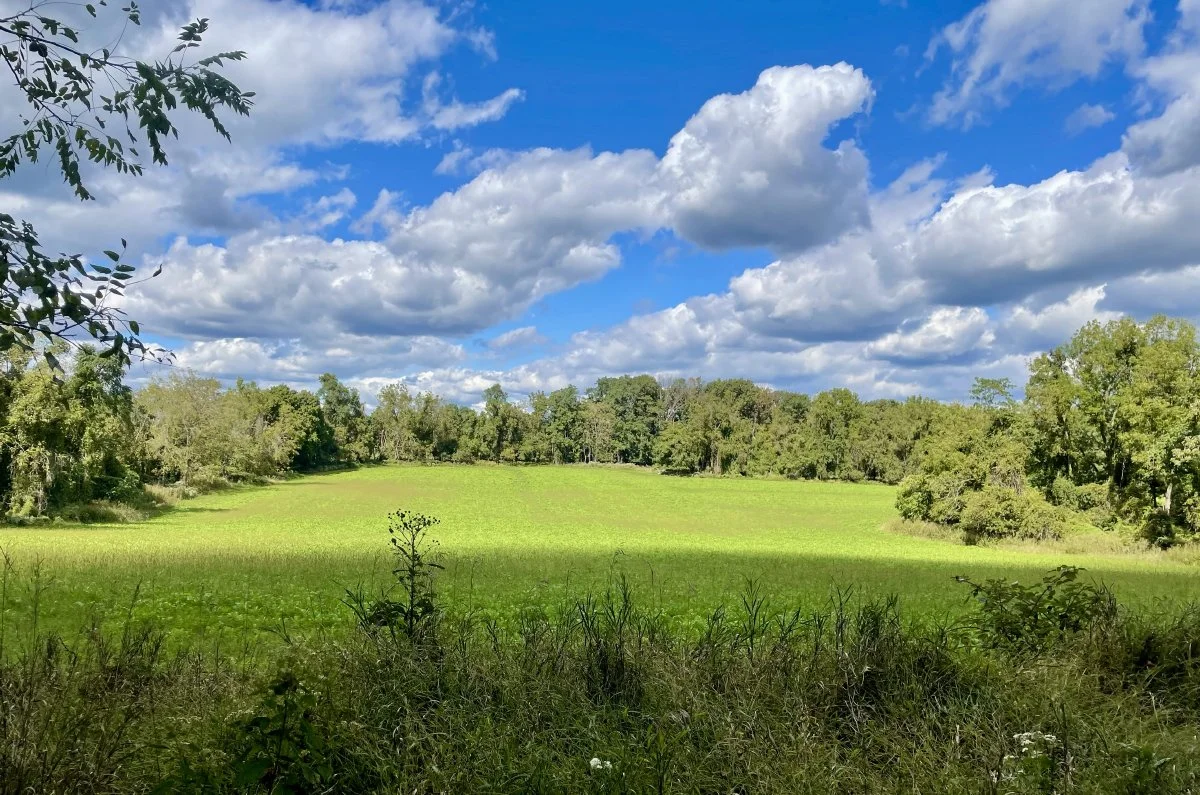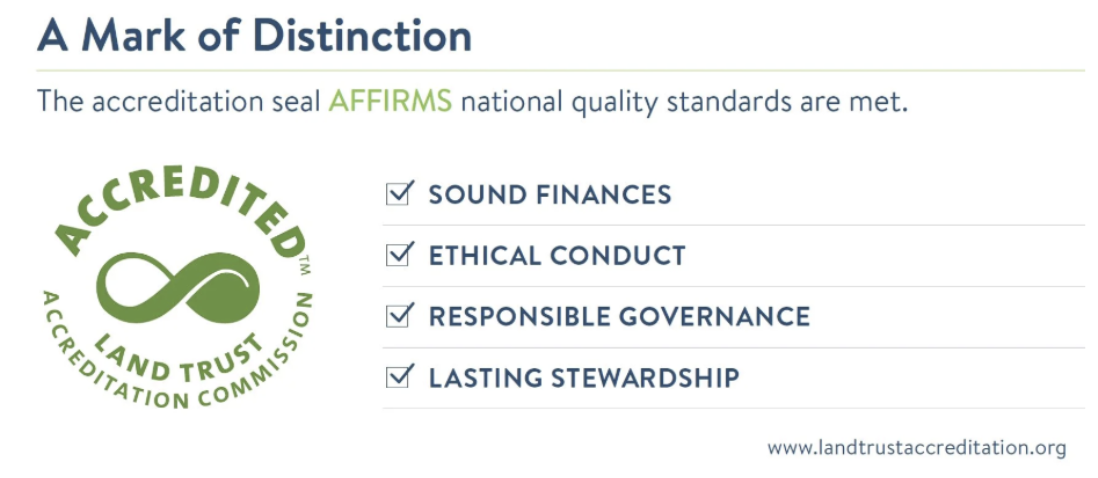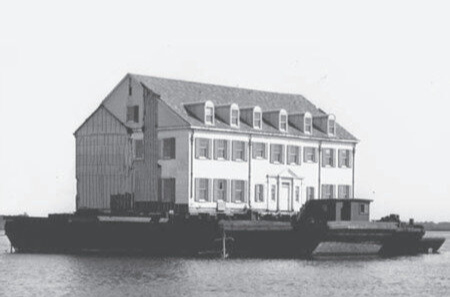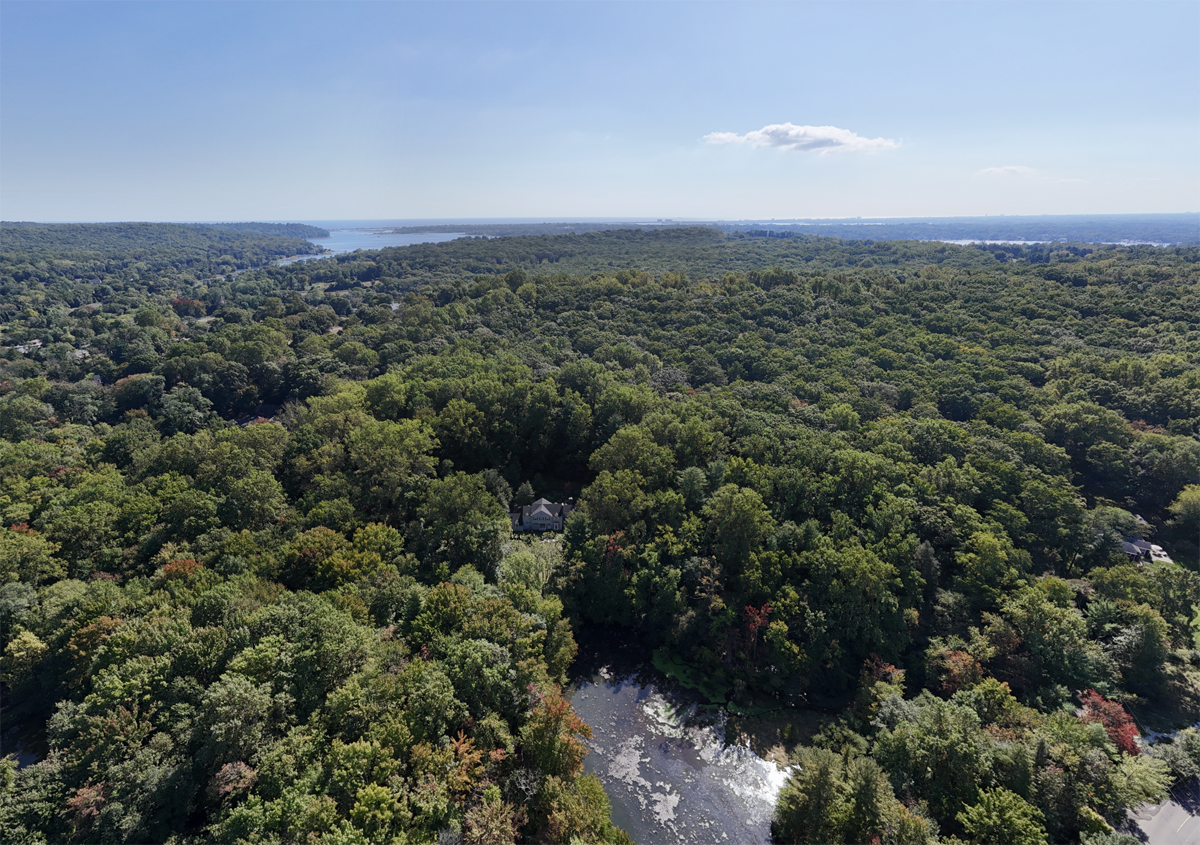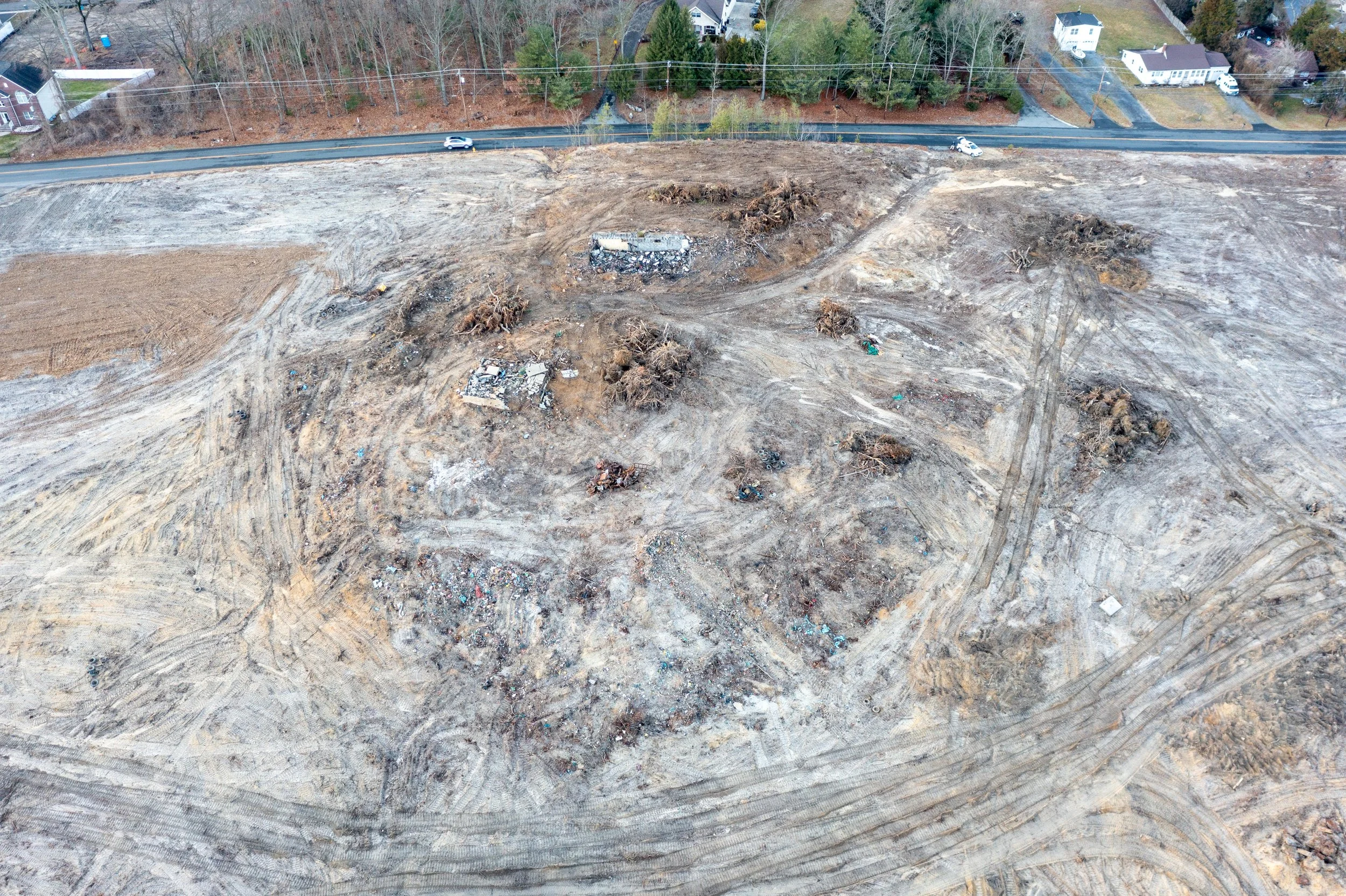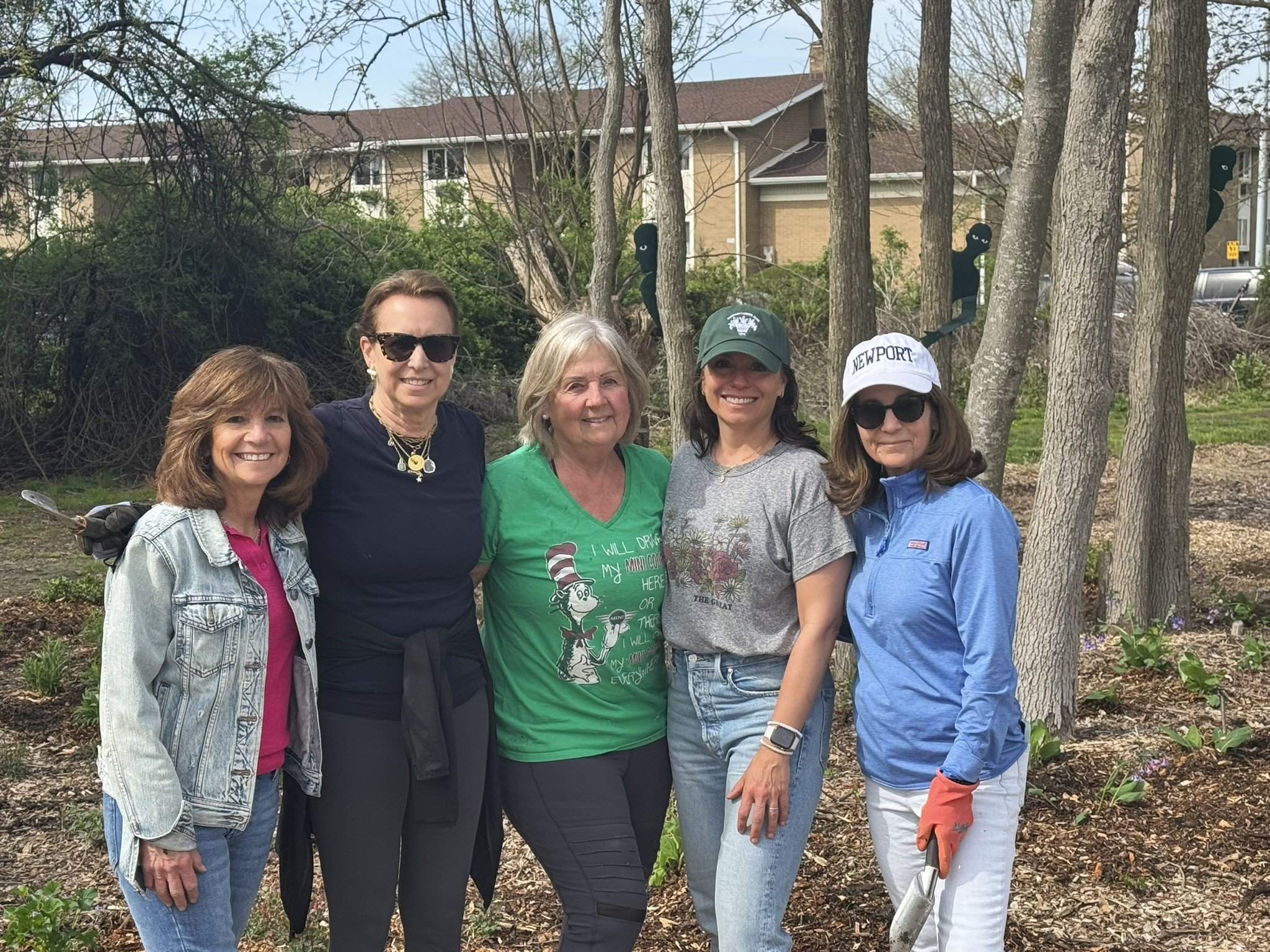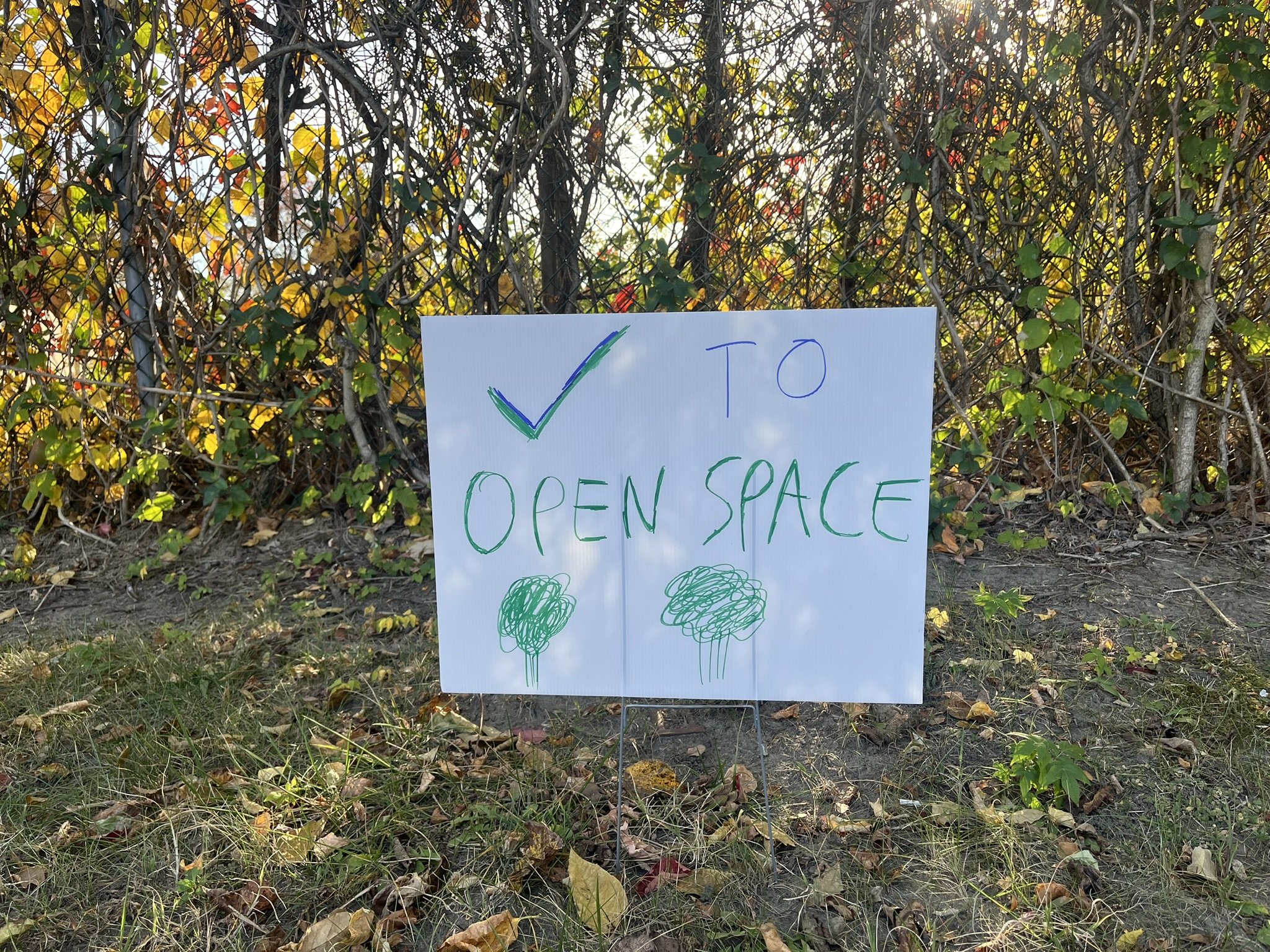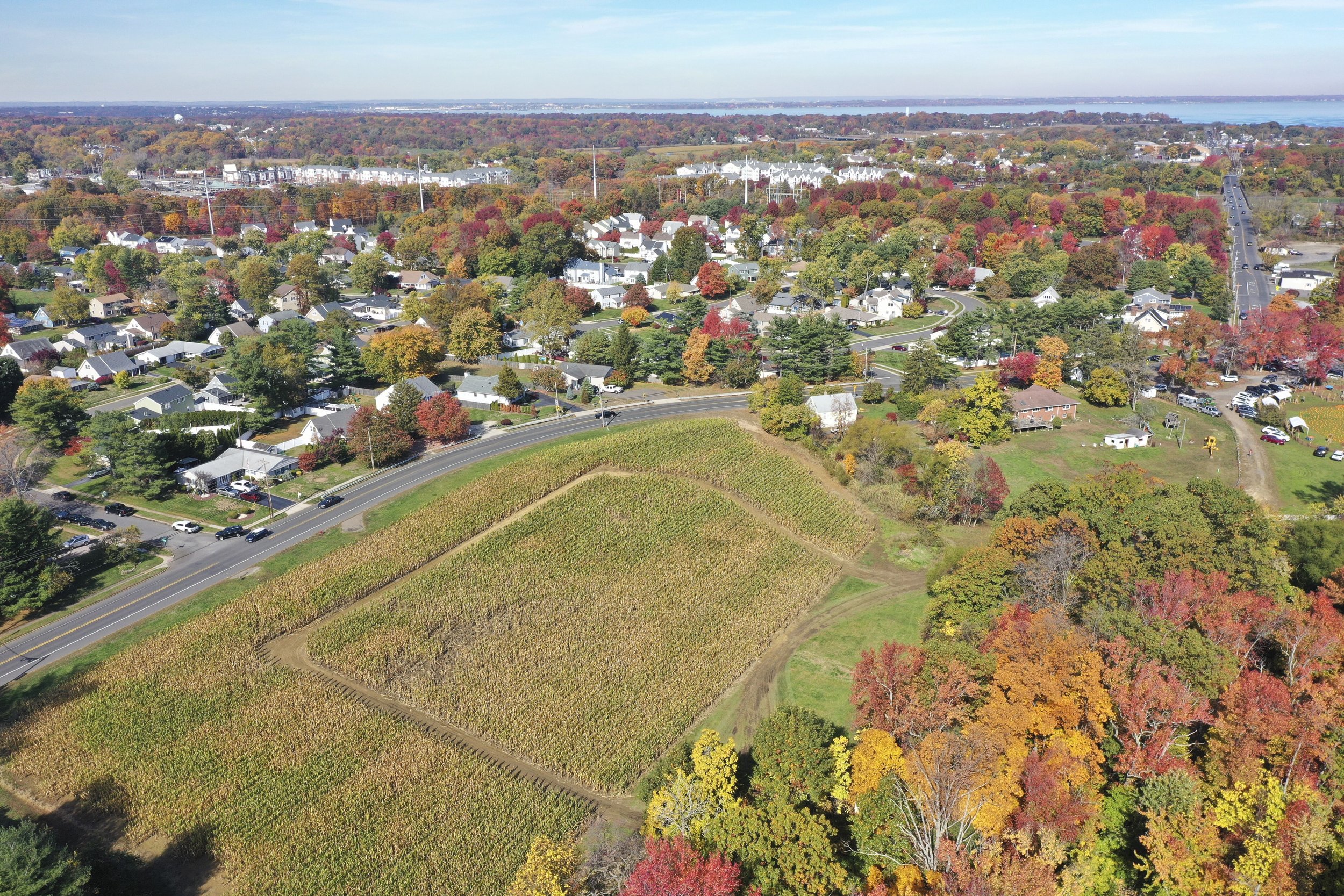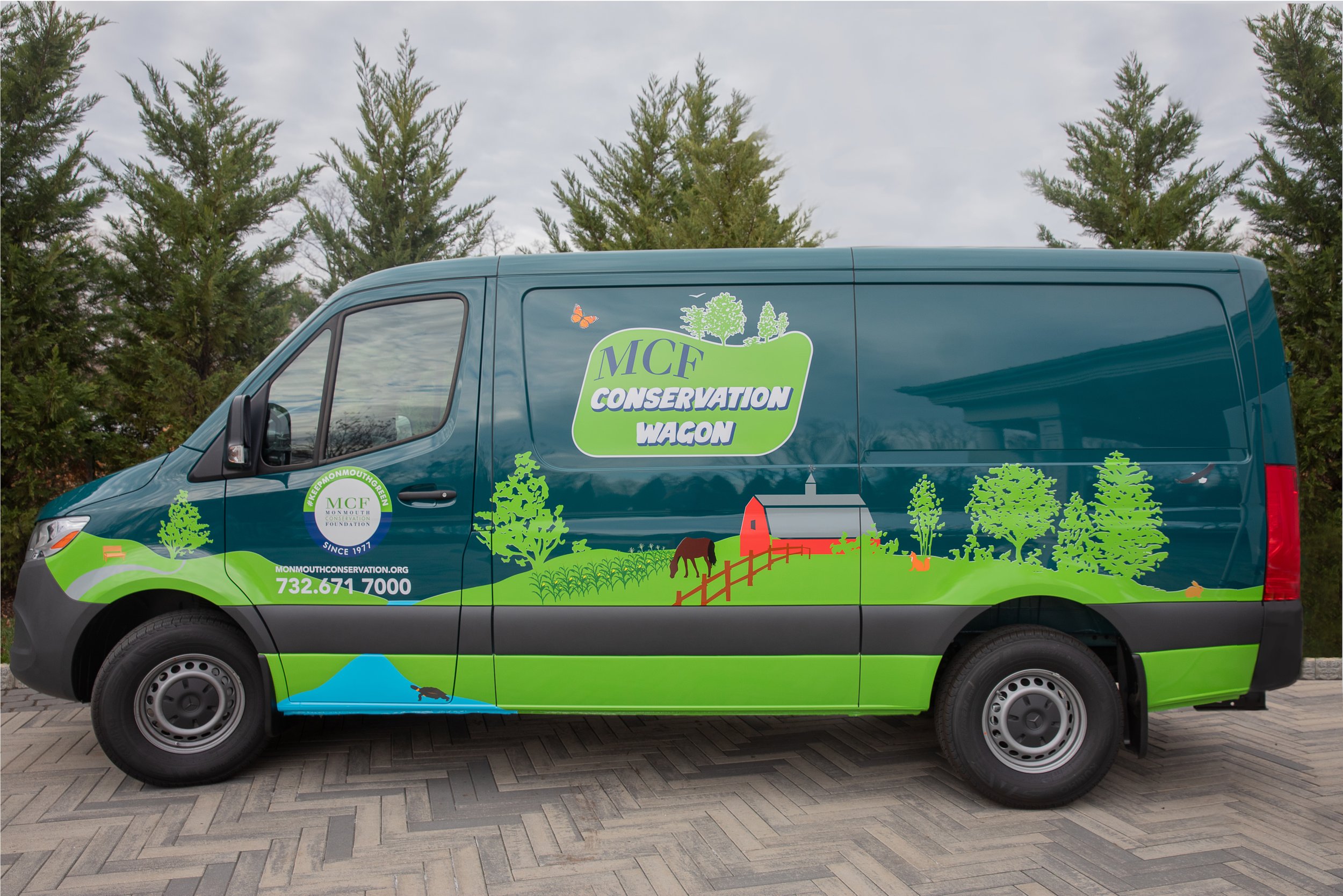MCF's 2025 Holiday Luncheon Announced
Monmouth Conservation Foundation Announces 2025 Holiday Style Luncheon & Shopping Spree, Featuring Sustainability Icon Danny Seo
Monmouth Conservation Foundation (MCF) invites the community to celebrate the season at its annual Holiday Style Luncheon and Shopping Spree on Wednesday, December 3, 2025, from 11:00 AM to 4:00 PM at Shadowbrook at Shrewsbury. This beloved signature fundraiser supports MCF’s charitable work to preserve open space, protect natural resources, and #KeepMonmouthGreen.
The event’s festivities include a three-course luncheon, wine and signature cocktails, exclusive shopping experiences, holiday prizes, and a keynote program beginning at 12:00 PM. Guests may browse the holiday style boutique both before and after lunch, featuring an eclectic range of vendors, many of whom offer eco-friendly products. Twenty percent of all boutique sales will benefit MCF’s conservation work.
Featuring Special Guest & Keynote Speaker Danny Seo
This year, MCF is proud to welcome Danny Seo as the event's keynote speaker. Danny is one of the nation’s leading voices in sustainable living. Born on Earth Day, Seo launched his first environmental nonprofit at age 12, and has since become an influential advocate for accessible, eco-friendly living. He is the Emmy Award–winning host and executive producer of NBC’s Naturally, Danny Seo, the Chief Lifestyle Contributor on The Drew Barrymore Show, an author and magazine publisher, and the creator of a popular eco-friendly product line sold throughout North America and Europe.
Seo’s unique ability to merge sustainability, wellness, and modern design has inspired millions to adopt greener lifestyles. Attendees will hear firsthand how making small but powerful choices, like collecting rainwater for gardening, refreshing linens with natural alternatives, recycling hard-to-dispose-of items like old sneakers, or planting pollinator-friendly flowers can create meaningful environmental impact both at home and within communities. Seo will share how these everyday shifts can not only reduce our footprint but can also save time, money, and improve our overall health.
River Road Books will be onsite with a limited selection of Danny Seo’s books, with a portion of sales supporting MCF. Guests will also have the opportunity to meet Danny during an exclusive book signing.
A Curated Holiday Shopping Experience
The Holiday Shopping Boutique will feature a thoughtfully curated mix of fashion, beauty, home, food, and lifestyle vendors, perfect for finding meaningful gifts or treating yourself. This year’s participating makers and brands include:
Amanda Jean NYC · Anavair Studio · Au Honey · The Atticco · Bruce Perlmutter Wood Works · Bungalow Road · Chelsea Boutique · COSBAR · Couture Planet · Duru Luxury · Forlanya Jewelry · Francine's Outrageous Kitchen · Ivy Coastal Collection · Janet Mavec · J.McLaughlin · Jolie by the Sea Boutique · June & Joy · Naylor & Naylor · Pink Moon Boutique · Posh Paillette · Purple Dew · Scruba LIL Deeper · Shompole · Sweetest Sin · Touchstone/Swarovski Jewelry · Trademark Boutique
With festive surprises planned throughout the day, this event promises to be a highlight of the holiday season.
Supporting Conservation Close to Home
Since 1977, MCF has worked to create parks, preserve farmland, protect waterways, restore wildlife habitats, and ensure the long-term sustainability of Monmouth County’s natural resources. Proceeds from the Holiday Style Luncheon and Shopping Spree directly support MCF’s mission, helping safeguard the landscapes that make Monmouth County such a cherished place to live.
Reserve Your Seat Today
Join MCF to celebrate the season, support local conservation, and welcome one of the nation’s most inspiring leaders in sustainability. Tickets are $175 per person. Reserve your spot and explore full event details at monmouthconservation.org/holiday.
Sponsorship and underwriting opportunities are still available.
Contact Kathleen Kenney for more information: kkenney@momouthconservation.org
* * * * * *
Founded in 1977, Monmouth Conservation Foundation (MCF) works to acquire and preserve open space and farmland and conserve natural habitats throughout Monmouth County in support of outdoor recreation, agriculture, clean water, and wildlife for long-term sustainability. An independent nonprofit organization that works with Monmouth County and its 53 municipalities, MCF’s vision is to lead conservation and education efforts to preserve and protect our natural environment, so all individuals and communities have access to and can benefit from open space and nature for generations to come. MCF received accreditation by the Land Trust Accreditation Commission in 2014 and has continued to maintain this status since. Accreditation is awarded to land trusts meeting the highest national standards for excellence and conservation permanence. MCF is one of 478 accredited land trusts out of 1,281 nationwide. For more information, visit www.monmouthconservation.org.
Behind-the-Scenes as We Inventory Scudder Preserve’s Natural Resources
Q&A with Anthony Silva, Senior Biologist at DuBois & Associates
After the thrilling acquisition of Scudder Preserve in April 2024, Monmouth Conservation Foundation began developing a stewardship plan for the Middletown property. To establish a baseline understanding of the plants, animals, and natural features found on site, the nonprofit land trust enlisted DuBois & Associates Environmental Consultants to conduct a natural resource inventory.
Over the course of a year and spanning all four seasons, the DuBois team of scientists carefully documented Scudder Preserve’s wildlife, trees and vegetation, water features, and diverse habitats. Each season brought its own discoveries, highlighting the complexity and beauty of Scudder Preserve's ecosystems. Natural resource inventories inform opportunities for public education, land management, and effective habitat restoration, and MCF plans to use the results of the DuBois & Associates inventory to guide our ongoing commitment to responsible stewardship of Scudder Preserve and its natural wonders.
With the study now complete and the final report in hand, MCF connected with Anthony Silva, a senior biologist at DuBois & Associates and one of the dedicated environmental scientists who spent a year evaluating Scudder Preserve. In this Q&A, Anthony offers a behind-the-scenes look at the inventory process and shares his perspective on the area’s natural treasures.
Photo courtesy of Anthony Silva
Meet Anthony Silva
Growing up, I used to love going camping with my family and spending time in the woods. Walking through streams and flipping rocks to look for frogs was my favorite way to be outside.
I graduated with a degree in environmental science, and I’ve been working with Bryon DuBois for 20 years now. In that time, I became a certified professional wetland scientist and am qualified by the US Fish and Wildlife Service to survey for federally threatened northern bog turtles and several endangered species of bats. It’s a really fulfilling career.
The best thing about working at DuBois is the opportunity to work with a fantastic team of scientists and professionals. We have a multi-disciplinary team with expertise in the fields of ecology, botany, herpetology, ornithology, and other natural resource sciences, who all helped shape Scudder Preserve’s natural resource inventory.
How do you define a natural resource inventory, and why is it an important tool for land conservation and the stewardship of a property?
A natural resource inventory, or NRI, is a document and process that identifies, maps, and describes the natural and cultural resources within a specific geographic area. It serves as a foundational tool to inform land use planning and natural resource management by helping landowners understand their environment and make decisions about how to use and care for their property. It also helps inform conservation practices for the betterment of the broader local ecosystem.
When you began working at Scudder Preserve, what were your first impressions of the property’s ecological features?
The very first thing that struck me was the immediate awe of turning down the eastern driveway off Browns Dock Road and seeing the rhododendron thickets and conifer stands. It’s absolutely beautiful! You notice the maturity of the trees in what we call a legacy forest because it’s been around for so long.
There is a huge tulip tree just south of the main house, which is spectacular. I saw that and just thought, wow. This is the largest tulip tree I’ve ever seen. This has got to be some kind of record! We measured it and submitted a Big Tree nomination form to the New Jersey Forest Service. Sure enough, they certified it as the second-largest tulip tree known to exist in the whole state!
Another standout for me is the main Scudder pond, which is beautiful. Located behind the main house, it has an abundance of basking turtles, and you are likely to observe foraging waterbirds. The periphery of the pond and homestead area is surrounded by an array of ornamental plants that I understand were lovingly planted and meticulously cared for by the previous owners, Dick and Libby Scudder.
Finally, traversing the nature trails is special. They go through forests, scrubland, meadows, and streams. The white pine stand on the western track just gives you this sense of wonder. In our congested Garden State, it’s wonderful to find a quiet patch in nature.
Scudder Preserve’s Signature Tulip Tree.
Photo by DuBois & Associates.
How does the biodiversity at Scudder compare with other landscapes you’ve studied in Monmouth County?
The variety of ecological features and its location on the upper New Jersey coastal plain make Scudder Preserve unique and important for supporting wildlife corridors and migration pathways. Through the NRI process, we documented 89 species of birds, 9 types of reptiles and amphibians, 12 mammal species, 2 types of fish, and a variety of insects, so the diversity is rich at Scudder Preserve!
90-acre Scudder Preserve connects directly to Huber Woods Park, adding to more than 480 acres of continuous green space within a vital coastal plain region in New Jersey. Recognizing this connection, the Connecting Habitat Across New Jersey (CHANJ) project identifies the preserve as core wildlife habitat that supports a diverse range of species, including threatened, endangered, and critical birds, mammals, reptiles, insects, and flowering plants.
Additionally, Scudder Preserve’s location is positioned along the Atlantic Flyway, which is a major north-south migratory route for birds along the eastern coast of North America. So accordingly, the bird diversity and species richness of the preserve is very high.
What special ecological features might visitors notice, or potentially overlook, that you find especially interesting at Scudder?
Scudder Preserve’s small vernal pool. Photo by DuBois & Associates.
If you’re even luckier, you may come across the family of foxes emerging from their den just up the slope from this pool. Witnessing these events really stuck out to me during my time on site.
What excites you most about the potential future of Scudder Preserve?
I like this question because what truly excites me most is the enthusiasm I feel from MCF. Their staff and partners are committed to preserving the Scudder family legacy and promoting responsible stewardship and natural resource management on the preserve. They have reached out to me for guidance during the NRI process to set goals for long-term, collaborative restoration efforts and special projects.
MCF is a land steward committed to the furtherance of preservation, management, and education, and that should not be overlooked. I look forward to revisiting the site in the future and following along on their efforts!
Right away visitors will notice the main pond and the beautiful legacy forest; those are obvious and incredible features of Scudder Preserve. One hidden gem that could be easily overlooked is the small vernal (or seasonal) pond on the west tract. If you’re not specifically looking for it, you could easily walk right past it, but the “banjo twang” of green frogs or the “trills” of northern gray tree frogs may alert you to it. This small pool is busy with frogs, and if you are lucky enough, you might be able to see a juvenile snapping turtle basking just beneath the water’s surface.
Photo by Emilee Carton: Jersey Shore Wildlife Photography.
Photo by Emilee Carton: Jersey Shore Wildlife Photography.
MCF is grateful for its partnership with DuBois & Associates, whose work on the natural resource inventory has provided a strong foundation for stewarding Scudder Preserve. The study found that while portions of the wooded areas are healthy, others require restoration to control invasive vines and rejuvenate native grassland, shrubland, and wooded habitats. Other targeted maintenance includes deer management, improving water quality, selective understory control, and enhancing biodiversity through initiatives like pollinator gardens. These efforts will restore Scudder Preserve’s long-term environmental resilience and support its future as a protected space for wildlife and the community.
This work is supported by a generous grant from New Jersey Resources through their Coastal Climate Initiative and other charitable donations. MCF’s acquisition of Scudder Preserve, maintenance, and improvements to its infrastructure are supported by a transformative $1 million donation from an anonymous donor– critical seed funding for MCF’s long-term stewardship of the site. Scudder Preserve is open to the public and hosts regular community events. If you have questions about the property or are curious about visiting this special place, we invite you to visit the Scudder Preserve webpage to learn more. If you wish to contribute to the ongoing habitat restoration and stewardship of Scudder Preserve, explore options for donation here. MCF thanks you for your ongoing support of our efforts to #KeepMonmouthGreen.
Eco-Innovation in Sea Girt: Goats as Conservation Partners
The Sea Girt goat logo, courtesy of the Borough of Sea Girt.
Diane Anthony, a long-time Sea Girt resident, is passionate about her seaside community. “I’m blessed to live and work in Sea Girt. This small town is made up of dedicated municipal employees and volunteers, who genuinely care about our parks, open spaces, and environment.” Like many areas in Monmouth County, this coastal area has struggled with invasive plants. Species like Japanese Knotweed, English Ivy, Japanese Honeysuckle, mugwort, smilax, and tree of Heaven have crept across the borough, thriving at the expense of native plants. While many invasive plants may appear beautiful, they often grow quickly, escape the landscaped yards they are planted in, and outcompete native species for resources. This disrupts the local ecology by eliminating the habitats and food sources wildlife relies on. When native plant and animal species are negatively impacted, erosion danger can increase, watersheds can collapse, and communities become more susceptible to natural disasters like flooding or wildfire. “The vegetation of non-native plants and other species is not unique to our area. It’s happening in many municipalities, state, and even national parks,” Diane reflects. “And I think Sea Girt has a community responsibility to protect our environment for future generations.”
That sense of responsibility is shared by Monmouth Conservation Foundation, which is dedicated to protecting landscapes within Monmouth County and supporting community environmental initiatives. “Sometimes people think preserving land means you just leave it alone,” Jena Cosimo, MCF’s Acquisitions Director, shares. “But really there’s ongoing work to do. Tackling invasive plants and rebuilding native habitat is an example of the ongoing work conservation requires. By managing our natural communities in this way, we help keep our residential communities safe as well.”
An example of the dense plant life in Sea Girt, including many invasive species. Photo courtesy of the Borough of Sea Girt.
Goats prefer to browse on many plants, especially those with woody stems. Photo courtesy of the Borough of Sea Girt.
Edgemere Park in Sea Girt. Photo by Jena Cosimo.
When Diane was first elected as a Sea Girt councilwoman in 2018, she made invasive plant management a top priority. “Our goal was to find a safe and eco-friendly opportunity to control and remove these non-native species.” Her vision soon inspired the formation of a community focus group. At the recommendation of fellow councilmember Alan Zakin, the group explored creating a 501(c)(3) organization instead of pursuing an open space tax. This idea led to the establishment of the Sea Girt Conservancy, a grassroots nonprofit dedicated to protecting the borough’s natural environment. Last year, Monmouth Conservation Foundation partnered with the Conservancy to fund a large pollinator garden in Edgemere Park as part of its collaborative efforts to support native habitats.
For years, the Sea Girt Conservancy and a dedicated group of volunteers spent countless hours attempting to control invasive plants, but the steep slopes and dense growth along the Wreck Pond watershed made the battle nearly impossible to win by hand. “We all agreed that something needed to be done,” Diane shares. “Doing nothing would essentially make it worse, but we couldn’t keep up on our own.”
Then came an unusual idea. A resident shared an article about using goats to manage invasive species. “I don’t know if it was originally in jest or she really thought we could do this in Sea Girt, but I did some research about it, and it was interesting.”
Goats are natural allies in conservation. Targeted grazing has been utilized worldwide as an alternative to heavy mechanical equipment, manual plant removal, and herbicides. It is a cost effective, safe, and environmentally friendly strategy for invasive species management. Goats are natural browsers and prefer to eat a variety of woody-stemmed plants, allowing light and air to get to native plants and grasses, which levels the competitive playing field. Continual re-browsing of invasive plants weakens them enough for native plants to have a chance. “Using goats was outside the box for Sea Girt,” Diane explains, “but the concept isn’t new. It’s been successful elsewhere, so we thought, why not give it a try?”
After a unanimous Sea Girt Council resolution in favor, this summer, the Sea Girt Borough contracted ten goats from Green Goats Rhinebeck to tackle the town’s steep terrain. The pilot program was funded jointly by the Sea Gir Borough and Conservancy.
The goats made a grand entrance, celebrated by residents of all ages. “We had a welcoming party for the goats,” Diane recalls. “The children loved it, and it was a fun approach to engage residents.”
Participants in the goat-welcoming party. Photo courtesy of the Borough of Sea Girt.
The goats were such efficient workers that midway through the pilot, their numbers were reduced to four to ensure there was enough vegetation to re-browse over the full eight weeks. By the end of the program, the results were clear; the goats had practically eliminated the invasive plants, all while delighting the community and sparking important conversations about conservation.
Now that the pilot has concluded, the slopes will be restored with a mixture of annual and perennial native plant species, which will help prevent erosion, improve stormwater management, and provide healthier wildlife habitat. This learning experience, along with positive feedback from the Sea Girt community, has encouraged the Borough's plans to continue the use of goat grazing as part of an integrated invasive vegetation management plan in the future, which also includes targeted treatments and working with a local elementary school to plant pollinator friendly milkweed.
Diane is proud of her community’s willingness to think outside the box. “Sea Girt's temporary guests were genuinely welcomed by our community and have been missed since they’ve returned to Rhinebeck. As stewards of our treasured public spaces, it’s important to share the positive and rewarding outcomes of projects such as this.”
The Sea Girt community enjoyed the friendly goats. Photo courtesy of the Borough of Sea Girt.
The famous Sea Girt Goats. Photo courtesy of the Borough of Sea Girt.
Through the collaboration of the Borough and Conservancy, Sea Girt is proving that any municipality can take bold, innovative steps to protect open space and restore natural systems. MCF applauds these efforts to help #KeepMonmouthGreen.
To share your own conservation story in Monmouth County, or to explore ways to support sustainable land stewardship and conservation, contact us at info@monmouthconservation.org.
From Vision to Reality: NJR’s Support Builds a Home for Conservation and Community
Year-One Progress on Scudder Preserve Five-Year Grant
An owl resident of Scudder Preserve. Photo by Emilee Carton, Jersey Shore Wildlife Photography.
Monmouth Conservation Foundation (MCF) is Monmouth’s only County-wide land trust. Founded in 1977, MCF has been preserving land and protecting the natural habitat and agricultural heritage of Monmouth County for nearly 50 years. As more farms and open space are developed into residential communities or commercial properties, there is a constant challenge to balance progress with preserving the inherent value and unique character of our natural landscapes.
New Jersey is a small state, and MCF’s work is bound by the borders of our County. With the inevitability of total buildout in sight, the Foundation has long dreamed of creating a dedicated nature preserve and community space for environmental education. In 2024, that dream became reality when MCF acquired Scudder Preserve, 90 acres of vital natural habitat in Middletown.
The pond at Scudder Preserve. Photo by DuBois & Associates.
Securing the land was only the beginning. Improvements to the land were needed to bring MCF’s vision for Scudder Preserve to life. These improvements were made possible by a visionary $500,000 commitment made in 2024 by New Jersey Resources Corporation (NJR), a remarkable partner in both conservation and community service.
With NJR’s grant distribution shaping Scudder’s future over five years, MCF can restore and enhance the ecological health of the preserve while expanding its role as a place for learning and connection. NJR’s generosity has empowered MCF to envision this special place as a living classroom, a community gathering space, and a model for conservation and climate resilience.
Scudder Preserve has natural features with high ecological value. Photo by DuBois & Associates.
One of the many animals that will benefit from wetland restoration at Scudder Preserve. Photo by Emilee Carton, Jersey Shore Wildlife Photography.
With just the first installment, NJR’s grant has driven remarkable progress over the first year. We have completed wetland delineations and ecological assessments. Stewardship efforts are also well underway, including planning for bioswales that protect the pond and stream, a deer management program to restore ecological balance, and a natural resource inventory that is shaping strategies for long-term preservation. For example, Scudder Preserve was recently recognized for safeguarding habitat for many unique plant and animal species, including the silver-haired bat and a 201-year-old tulip tree, which was just named the second largest in New Jersey.
Scudder Preserve’s Signature Tulip Tree. Photo by DuBois & Associates.
Ray Bukowski, NJR's Managing Director of Government Affairs, Communications, and Sustainability, and Katie Feery, NJR's Director of Strategic Initiatives and Sustainability, celebrate the next installment of the Scudder grant distribution with MCF president Matt Cohen and Marty McHugh, chair of the Scudder Preserve Committee. Photo by Bill Kastning.
At the same time, NJR’s gift is strengthening our conservation community. This summer, MCF was able to begin hosting guided walks, tours, and nature programs at Scudder Preserve. Trails have been mapped and listed on AllTrails, marked with new signage, and long-term plans for accessibility and gathering spaces are moving forward. Looking ahead, NJR’s support will allow us to hire a dedicated on-site Stewardship Manager to ensure Scudder Preserve continues to thrive as a hub for conservation, education, and public enjoyment.
Red foxes are among the many animal species that call Scudder Preserve home. Photo by Emilee Carton, Jersey Shore Wildlife Photography.
Bill Kastning, Executive Director of MCF, reflects on the meaning of the grant. “Because of NJR's visionary generosity, we can steward the natural spaces that mean so much to residents, protect our water and wildlife, and strengthen the natural resilience of our County. NJR’s commitment makes it possible for us to keep our promise to the community both today and in the future.”
To learn more about MCF’s commitment to land stewardship, explore opportunities to support our mission, or learn more about Scudder Preserve, visit us at monmouthconservation.org or send us an email at info@monnouthconservation.org.
Preserving A Living Monument: A 201-Year-Old Tree Becomes a Signature Landmark at MCF’s Scudder Preserve
The 201-year-old Signature tulip tree at Scudder Preserve. Photo by Kevin Knecht.
At the heart of Scudder Preserve in Middletown, New Jersey, a towering tulip tree stands as both a biological marvel and a living witness to more than two centuries of American history. This 201-year-old Liriodendron tulipifera is a monument to the power of land preservation and natural resilience.
Tulip trees are deciduous plants native to North America. Related to magnolias, they are among the largest-growing tree species on the continent. Measured during an official inspection in July 2025, Scudder Preserve’s tulip tree recorded a circumference of 17 feet 5 inches, a height of 124 feet, and a crown spread of 112 feet. It earned an impressive 361 points in the American Forests National System and was officially designated as a Signature Tree. It is now recognized as the second-largest tulip tree in both Monmouth County and the entire state of New Jersey.
Scudder Preserve. Photo by Kevin Knecht.
The tree grows in a shaded rhododendron thicket in Scudder Preserve, located at 85 Browns Dock Road. Protected through a series of conservation easements donated by the visionary Scudder family beginning in 1983, the land officially became Monmouth Conservation Foundation’s first owned preserve in April 2024. This milestone marks a poignant new chapter in MCF’s mission to protect and steward open space throughout Monmouth County.
“We are honored to care for such a remarkable piece of New Jersey’s natural heritage,” said Jena Cosimo, Director of Acquisitions at MCF. “This tree is extraordinary in its size and age and reflects the kind of long-term impact that land conservation can have for nature, the climate, and generations to come.” The tulip tree took root in 1824, a period when New Jersey was transitioning from its Revolutionary War legacy into the industrial age. It predates the formal abolition of slavery in the state by more than four decades. Through the years, it has weathered wars, industrial development, environmental shifts, and the changing rhythms of American life.
The large blossoms that give tulip trees their name. Photo by Kevin Hall on Unsplash.
Its presence today is more than symbolic. Trees this size and age are rare and serve as ecological powerhouses. This single tulip tree performs six hundred times the environmental benefits of a typical tree, by improving air and water quality, supporting biodiversity, preventing erosion, and storing large amounts of carbon, all while providing shade, shelter, and natural beauty.
Because of its exceptional size, health, and aesthetics, the tree has been approved for inclusion in the New Jersey Big and Heritage Tree Registry. Maintained by the New Jersey Forest Service since the 1930s, the Registry helps document the largest and most historically significant trees in the state. It also tracks how tree populations have changed over time, offering insights into the environmental shifts that have occurred across decades. Anyone can nominate a tree for the New Jersey Big and Heritage Tree Registry. Trees are evaluated based on species, size, condition, and historical or cultural significance. To learn more about eligibility and to explore the Big Tree Interactive Map, visit the New Jersey Forest Service’s website or contact their Division of Parks and Forestry.
Scudder Preserve’s tulip tree. Photo by Jena Cosimo.
The typical lifespan of a tulip tree is between 200 and 300 years old, but in the right conditions, they can live up to 500 years. MCF is dedicated to ensuring those conditions remain ideal, because preserving trees of this magnitude is not a one-time effort. It requires continued attention, care, and commitment. MCF’s stewardship of Scudder Preserve includes monitoring invasive species, restoring native habitats, maintaining trails, and educating the public about the ecological value of the land. “Conservation is not a single moment of action,” Lauren Orme, MCF’s Communications Manager, shares. “It’s continued work to engage with the land. It’s a promise we make to our community, our environment, and the natural history that surrounds us.”
Through Scudder Preserve, MCF creates space for people to connect with nature, learn from the past, and imagine a better future. Because it is protected in perpetuity, this Signature Tree can continue inspiring generations to come, reminding us that what we choose to protect today becomes part of our shared legacy.
You can be part of this story.
Visit www.monmouthconservation.org to learn more about Scudder Preserve, get involved in our conservation work, or make a contribution to support lasting stewardship. Together, we can ensure that natural treasures like this extraordinary tulip tree thrive for centuries to come.
84-Acre Spinella Farm Preserved: Working Together for Land, Water, and Security
Strategic Conservation Partnerships Support Defense, Environment, and Quality of Life in Monmouth County
Spinella Farm. Photo by Fred Yahn.
Monmouth Conservation Foundation (MCF), in partnership with the Department of Defense through the U.S. Navy (Navy), Monmouth County, and Colts Neck Township (Colts Neck), has successfully completed the preservation of the Spinella Family Farm, an 84-acre property nestled between Creamery and Phalanx roads in Colts Neck, New Jersey. This collaborative effort places a deed of easement on the Spinella family’s private land, permanently protecting it from future development and ensuring it remains a natural and agricultural asset for generations to come. Additionally, it contributes to national defense by preserving the integrity of Naval Weapons Station Earle (NWS Earle), a critical military installation nearby. Landowners Jim and Linda Spinella have long held a deep appreciation for the natural world. Drawn to Colts Neck for its agricultural heritage and pastoral beauty, they moved to the area in 1995 and purchased the property that would become Spinella Farm in 2001. “Colts Neck is important to us,” Jim shares. “My whole family is out here. I have two brothers here, my dad lives adjacent to the property, and my grandchildren are here. It’s a great place to raise a family, and Spinella Farm is one of the nicest pieces of property in Monmouth County.”
White-tailed deer, caught on Spinella Farm wildlife camera. Photo courtesy of the Spinella family.
Jim and Linda raised two sons in Colts Neck and spent years immersed in the quiet beauty of the land. Together, they hiked, fished, hunted, picnicked, and embraced the peace that natural spaces provide. “We’re right in the middle of town, but you don’t even realize it – you could be in a wilderness area,” Jim says. “It’s a great place to escape.”
Their passion for the land is enhanced by their appreciation of the wildlife that thrives there. “We have five bald eagles on the property – two adults and three juveniles we see all the time – and there are coyotes, deer, foxes, ducks, turkeys, and some of the fields are near nesting sites for snapping turtles,” Jim explains. “They climb up the bank, dig their nests in the field, and head back down into the water. It’s pretty amazing. The property joins the Swimming River reservoir, so it’s just a beautiful area.”
Over the years, Jim and Linda watched as the open spaces they first appreciated in Colts Neck began to disappear. Witnessing the steady loss of farmland to development, they began to consider placing a conservation easement on Spinella Farm. “Since we moved here 3 decades ago, we’ve seen significant changes in the town,” Jim reflects. “There was a lot more farmland in the past, and there’s been a lot of development. We decided we’d like to see the place preserved and do our part to maintain what was left.” Their dedication to stewardship now extends into perpetuity, thanks to this landmark preservation effort.
Through this unique cost-sharing model, the Navy, Monmouth County, Colts Neck, and MCF worked with the Spinella family to ensure their land will remain undeveloped and ecologically viable. The property lies along Yellow Brook, a Category 1 stream that feeds into the Swimming River and ultimately the Swimming River Reservoir, an important drinking water source for the region. Category 1 waterways are designated for special protection due to their exceptional ecological, recreational, water supply, or fisheries significance, and preserving this watershed helps protect water quality, wildlife habitat, and the broader ecosystem of Monmouth County.
Yellow Brook runs through the Spinella Farm property. Photo by Jena Cosimo.
In addition to its environmental value, the Spinella property holds agricultural importance. Its preservation means the farm can continue supporting New Jersey’s agricultural economy and upholding Monmouth County’s historically rural character. “The Monmouth County Board of County Commissioners is proud to have partnered with the U.S. Navy, Colts Neck Township, and Monmouth Conservation Foundation on this important preservation project. Together, we’re creating lasting solutions for land use, public safety, and conservation,” said Commissioner Director Thomas A. Arnone. “This preservation project helps keep Monmouth County connected to its agricultural roots and shows what can be achieved when community partners come together to accomplish a shared goal.”
A grove of chestnut trees on the Spinella Farm property. Photo by Harriet Honigfeld.
The project also reflects shared conservation priorities between local and federal entities, demonstrating how environmental protection can align with public safety and national defense. Because of the Department of Defense’s Readiness and Environmental Protection Integration (REPI) Program, military installations like NWS Earle can form innovative partnerships with conservation organizations and local governments to establish natural buffer zones and protect critical natural resources. “Our partnership with Monmouth County and MCF through the REPI program will help buffer Naval Weapons Station Earle from future encroachment, ensuring the installation can continue its vital mission in the strategic defense of our nation without disruption,” said Nicholas Ginther, Community Planning Liaison Officer for Naval Weapons Station Earle. “At the same time, this collaboration supports our neighbors in Monmouth County by preserving the historic farmland that defines their community’s identity. Together, we are safeguarding both national security and local heritage.”
Rearing white tail deer, caught on Spinella Farm wildlife camera. Photo courtesy of the Spinella family.
For the Spinella family, this effort was more than protecting private land; it was about honoring a family legacy. Each partner played a role in helping safeguard that vision. “Working with the [team] was great,” Jim says. “They shepherded the whole process for me. They were so communicative and let me know what was happening and have been a pleasure to work with. They’ve all been enthralled with the wildlife and plants, which are abundant, so they can see that the property is special.”
Red fox in a field, caught on Spinella Farm wildlife camera. Photo courtesy of the Spinella family.
Monmouth Conservation Foundation’s Executive Director, Bill Kastning, reflects on the broader significance of Spinella Farm’s preservation. “Projects like this one support the preservation of working farmlands, protect habitat for threatened and endangered species, and offer long-term opportunities for outdoor recreation and conservation education. By investing in land protection, we help secure open space and a higher quality of life for residents.”
With a conservation easement now in place, the history, character, and ecological value of Spinella Farm will be preserved, even as development pressures remain high throughout the region. For Jim Spinella, that permanence brings peace of mind, pride in his family’s legacy, and a lasting sense of fulfillment. “I envision my kids and grandkids continuing to use the property,” he shares. “That ultimately would be my wish, for them to enjoy it the way we’ve enjoyed it.”
Colts Neck Mayor, Tara Torchia Buss, shares, “Strategic land preservation efforts like this are essential to maintaining the character, resilience, and natural beauty of Colts Neck and Monmouth County. The Township Committee is grateful for the partnership with the Spinella Family, Naval Weapons Station Earle, Monmouth County, and Monmouth Conservation Foundation.” The success of this effort is a testament to what can be achieved when landowners, government agencies, and conservation groups work together in a shared sense of purpose. Thanks to the conservation easement now in place, Spinella Farm can never be developed. Its fields, forests, waterways, and wildlife habitat will remain protected forever.
A field at Spinella Farm. Photo by Jena Cosimo.
If the Spinella family’s story inspires you, we encourage you to share it with others. If you or someone you know owns land and would like to explore conservation options, please contact us at info@monmouthconservation.org. Anyone can make a lasting impact with a donation to our dedicated nonprofit. Thank you for helping us #KeepMonmouthGreen!
Learn more about MCF’s work with the REPI program and other MCF-supported REPI projects on MCF’s website.
Monmouth Conservation Foundation Celebrates Accreditation Renewal
Contact: Karen Keene
kkeene@monmouthconservation.org
T. 908.839.0324
Graphic awarded by the Land Trust Accreditation Commission
Monmouth Conservation Foundation (MCF) is pleased to announce that its national accreditation has been renewed by the Land Trust Accreditation Commission for an additional five years. This renewal follows a comprehensive and rigorous review process and affirms MCF’s continued leadership in land conservation excellence.
Originally accredited in 2014, MCF continues to uphold the highest national standards for conservation permanence, organizational integrity, and long-term stewardship. With this renewal, MCF remains among a select group of fewer than 500 accredited land trusts nationwide, out of more than 1,200 land trusts operating across the United States. Accredited organizations represent the highest level of professional practice in land conservation and are recognized for their commitment to ethical conduct, strong governance, and sound financial management.
The accreditation renewal process is administered by the independent Land Trust Accreditation Commission and involves an in-depth evaluation of a land trust’s policies, programs, and practices, including a public comment period. This robust review ensures that accredited land trusts operate responsibly and effectively while protecting land in perpetuity for the benefit of their communities.
“Earning this accreditation renewal is a meaningful milestone for Monmouth Conservation Foundation,” said William Kastning, MCF’s Executive Director. “It reflects the strength of our organization, the dedication of our board and staff, and our unwavering commitment to protecting open space and farmland, and stewarding conserved lands. This recognition reinforces our work across Monmouth County to keep our landscapes healthy, resilient, and accessible to our community in the most ethical ways possible.”
This Land Trust Accreditation Commission distinction signals to landowners, partners, supporters, and the public that MCF operates with transparency, accountability, and long-term vision. The renewed accreditation will remain in effect for five years, and underscores the trust placed in MCF by the broader land conservation community. To learn more about the Land Trust Accreditation Program, visit www.landtrustaccreditation.org.
* * * * *
Founded in 1977, Monmouth Conservation Foundation (MCF) works to acquire and preserve open space and farmland and conserve natural habitats throughout Monmouth County in support of outdoor recreation, agriculture, clean water, and wildlife for long-term sustainability. An independent nonprofit organization that works with Monmouth County and its 53 municipalities, MCF’s vision is to lead conservation and education efforts to preserve and protect our natural environment, so all individuals and communities have access to and can benefit from open space and nature for generations to come. MCF received accreditation by the Land Trust Accreditation Commission in 2014 and has continued to maintain this status since. Accreditation is awarded to land trusts meeting the highest national standards for excellence and conservation permanence. MCF is one of 478 accredited land trusts out of 1,281 nationwide. For more information, visit www.monmouthconservation.org.
A Legacy of Land, Community, and Conservation: Honoring Dick and Libby Scudder
This fall, Monmouth Conservation Foundation is proud to posthumously honor Richard “Dick” and Elizabeth “Libby” Scudder, two visionaries whose legacy spans journalism, environmental innovation, and land preservation. Their most enduring contribution to the natural world is Scudder Preserve, a 90-acre natural treasure in Middletown, now owned and stewarded by MCF.
Photo of Dick and Libby courtesy of Jean Scudder.
The Scudder family began safeguarding the property in 1983, donating conservation easements to MCF over nearly two decades. Dick and Libby’s commitment deepened with a gift of 60 acres to New Jersey Audubon (NJA) in 2007, followed by a bequest of the remaining 30 acres and their homestead upon Dick’s passing in 2012. In April 2024, MCF became the proud owner of Scudder Preserve, our first landholding, marking a new chapter in our mission to protect and steward open space in Monmouth County. This remarkable preserve, split by Browns Dock Road and nestled beside Huber Woods and the nearby Navesink River, will continue to inspire environmental awareness and serve as a gathering place for outdoor education beneath the tulip trees and rhododendrons Dick planted.
The pond at Scudder Preserve. Photo by Jena Cosimo.
Photo of Dick Scudder courtesy of Jean Scudder
Dick Scudder (1913–2012) was a pioneering force in American journalism. He began as a reporter before becoming a publisher and co-founder of MediaNews Group, which grew to become one of the nation’s largest privately held newspaper publishers. He also served in World War II, remaining in post-conflict Germany to help reestablish a free press. An enterprising inventor, Dick co-developed a de-inking process that enabled newspaper recycling in the U.S., a breakthrough he and his chemist friend Bob Illingsworth devised in the Scudder family’s kitchen sink. In a remarkable act of public mindedness, they chose not to patent the process, despite its immense commercial potential, because they believed the ability to recycle paper should be shared freely. Dick was inducted into the Paper Industry Hall of Fame in 1995 and served as a trustee at both the Princeton Environmental Institute and Rutgers University.
Libby Scudder (1920–2004) was born in China and raised in the U.S. She was a trained nurse known for her warmth and generosity, a passionate pediatric hospital volunteer, and loving group-home mentor. Libby and Dick were married for 60 years and raised their children, Holly, Charles, Carolyn, and Jean in New Jersey, imbuing their family life with a deep value for nature and community. As their daughter Jean shares, they were devoted to preserving land and were beloved in the community for their kindness, inclusivity, and quiet philanthropy.
Photo of Libby Scudder courtesy of Jean Scudder
The four Scudder children, from left to right: Carolyn, Holly, Jean, and Charles. Photo courtesy of Jean Scudder.
The Main Clubhouse, built by Edward Scudder, being transported by barge to the Rumson Country Club. Photo courtesy of The Rumson Country Club.
This October, MCF will honor the Scudder family at our annual Fall for Conservation event at The Riverhouse at Rumson Country Club, a place of special significance to the Scudder family. Rumson Country Club’s historic Main Clubhouse was once the home of Dick’s father, Edward Scudder, who built it around 1900. Once acquired by the club, the home was relocated to its current position by barge. This powerful full circle moment aims to celebrate a family whose legacy has shaped not only the land but the heart of MCF’s mission.
“Dick and Libby Scudder represent the spirit of vision and leadership that defines our work at MCF,” says Bill Kastning, Executive Director of Monmouth Conservation Foundation.
“Their legacy will live on in every child who explores the woods, every community member who gathers to observe, and every moment of stillness beneath the trees they planted. We are honored to carry their legacy forward.”A trail at Scudder Preserve. Photo by Kevin Knecht.
Through Scudder Preserve, generations to come will continue to benefit from Dick and Libby’s enduring commitment to conservation, education, and inclusivity. Their story reminds us that the most meaningful legacies are those that grow quietly over time in the service of others.
Scudder Preserve.
Photo by Kevin Knecht.
Join us at MCF's Fall for Conservation Cocktail Party to help honor the Scudder family and further our efforts to #KeepMonmouthGreen.
Click here to learn more about MCF's efforts at Scudder Preserve, made possible by our generous donors and partners.
The Cost of Collision: Honoring Wildlife Through Conservation
Photo by Mathew Schwartz on Unsplash
On Tuesday, June 18, Kate was driving in Monmouth County when she was startled to find a bald eagle lying on the road near the carcass of a deer. The deer had been hit and killed by a car. While bald eagles primarily rely on fish for food, they are opportunistic and will scavenge when possible. This eagle had likely been drawn to the deer carcass for an easy meal when it, too, was struck by a vehicle.
Kate pulled over and found the eagle had already died. After contacting the Assunpink Wildlife Conservation Center, it was determined that the eagle was one of a mated pair living in the area. Though no longer endangered and delisted by the Migratory Bird Treaty Act, bald eagles are protected by the Bald and Golden Eagle Protection Act. They are impressive creatures at the top of the food web, who are often considered bioindicators of ecosystem health and habitat quality. The deaths of both animals in the same location are not a coincidence. They reflect the tensions between development and wildlife habitat in Monmouth County. Kate was especially saddened by the loss, knowing the local community had worked to protect this eagle pair from the growing number of warehouses in the area. Bald eagles are typically monogamous, forming strong lifelong bonds and maintaining the same nest site for years (Cunningham et al., 2019). “As an ecologically conscious individual part of an even larger ecological community, I wanted to share my dismay and advocate for the conservation of our local lands.”
The bald eagle is a powerful symbol of American freedom and resilience, admired for its strength and majesty. Once teetering on the edge of extinction due to habitat loss and the widespread use of DDT, bald eagles have made a remarkable recovery thanks to decades of conservation efforts, legal protections, and growing public awareness (Bowerman, 2002). Their resurgence remains one of the most inspiring conservation success stories in the United States, reminding us how important it is to protect animal habitats.
Preserving open space is essential for wildlife survival. It safeguards critical nesting and foraging areas and helps maintain the natural corridors animals use to move safely across the landscape. Science-informed, ecologically thoughtful planning can reduce the impacts of development on wildlife and ecosystems, making it possible for both people and nature to thrive. Organizations like Monmouth Conservation Foundation play an essential role in this effort, protecting land, preserving habitat, and providing environmental education that fosters a deeper connection to and understanding of the natural world.
Habitat loss due to development is a contributing factor to human-wildlife conflict in Monmouth County. Photo by Fred Yahn
According to the New Jersey Department of Fish and Wildlife, summer is the peak season for wildlife activity, with animals nesting, foraging, mating, and raising young. Unfortunately, this also leads to a rise in wildlife-vehicle collisions. Summer consistently reports the highest number of road interactions, mirroring the timing of this incident. As New Jersey’s human population grows, development adds pressure on wildlife. In response, the Department launched the Connecting Habitat Across New Jersey (CHANJ) initiative to help residents support and protect local species. Through the CHANJ Wildlife Tracker, citizens can report wildlife crossings or roadkill, generating data that informs conservation and identifies priority areas for safe crossings. Since its launch, over 800 sightings have been submitted across nearly 50 species.
This eagle’s death is more than a tragic moment. It is a call to reflect, learn, and take actionable steps toward building a future that supports both human progress and the natural world. Responsible development, grounded in science and environmental sustainability, can help ensure that places like Monmouth County remain rich in both human opportunity and natural biodiversity. MCF encourages readers to drive cautiously during peak wildlife activity, especially in known crossing areas, to report sightings through the CHANJ Wildlife Tracker, and support ongoing efforts to preserve the land, wildlife, and natural heritage that make our region special. #KeepMonmouthGreen
MCF is proud to steward open spaces that allow wildlife like bald eagles to thrive. Photo by Jena Cosimo
Read more about the expanding development of warehouses in New Jersey, value of land use planning, and what citizens can do to help on MCF’s website.
Farmland Preservation as a Business Development Tool: The Linney Family Story
Land preservation affords many benefits to property owners and the public. For farmers, it can be a powerful tool to make their land more affordable and expand their business. The Linney Family of Howell, New Jersey is a perfect example, having grown and flourished their wholesale nursery business – Linwyck Gardens Wholesale Farm & Greenhouses over three decades, thanks to their hard work and commitment to land preservation.
Linwyck Gardens. Photo courtesy of the Linney Family.
Lissa and John Linney. Photo by Jena Cosimo.
The Linneys began their farm at the crossroads of Freehold, Howell, and Colts Neck in 1988 with one greenhouse, sharing the land with their home, which dates back to the early 1700s. John Linney grew up in Colts Neck and had taken riding lessons at a horse farm close to his future property. He always liked the house and plot of land, leading John at age 27 with his wife, Lissa, to purchase it with his parents’ help.
“Growing up, this was the last house on Five Points Road before a long stretch of farms. It was mostly farm kids in school. Now, much of this area has been developed, and farmers have been replaced by executives and people commuting to the city,” said John Linney.
When they purchased their farm home, John and Lissa had just begun their chemical Lawn Care company. The couple met in the early 80’s when John worked at a large thoroughbred farm that had been converted to cattle and grain and Lissa worked at the local general store.
After years of building a successful lawn care business, they made the decision in 2000 to sell the company and devote themselves full-time to greenhouse agriculture—a passion of Lissa’s—on their newly acquired farmland.
Though Linwyck Gardens was originally established in 1988, it was only then that it became their central focus. What began as a handful of small greenhouses has since grown into a flourishing operation, now encompassing approximately 3 acres of greenhouse space and 40 acres of land. Over the years, they have expanded their offerings to include annuals, shrubs, hay, straw, and a vibrant selection of fall ornamentals. They start their crops from seed and plug or unrooted cuttings, and their biggest product is SunPatiens. The farm services customers including landscaping professionals, garden centers, golf courses, and fundraising organizations.
John and Lissa’s two children, Katelyn and Sean, are actively involved in running the business. Sean, who has been with the operation for about eight years, manages the crew and most aspects of the farm, while Katelyn has been overseeing the office, sales, and assisting Lissa with the inventory system and production schedule for the past two years. John focuses on management and finances.
Katelyn, Lissa, and John, and Sean Linney. Photo courtesy of the Linney Family.
Preservation Story
The Linneys preserved their original farm in 2006. The family retained ownership of their 11.5-acre homestead and farmland, but relinquished development rights and permanently preserved the land through the New Jersey Department of Agriculture’s Farmland Preservation Program. This was done in partnership with the State Agriculture Development Committee (SADC), Monmouth County through their Monmouth County Agriculture Development Board (MCADB), and Howell Township. Together, these partners purchased an agricultural easement, forever restricting development and ensuring the land will be forever available for agriculture.
Linwyck Gardens. Photo courtesy of the Linney Family.
Linwyck Gardens was one of the early farms preserved in their area. While other landowners opted to sell their land to residential or warehouse developers, the Linney family saw an opportunity to preserve their farming way of life and benefit their community by retaining green space, both while earning income through the easement purchase revenue.
Sean and John Linney. Photo by Jena Cosimo.
“Preservation has allowed us to support our family and grow our business, while continuing to live on and work our land,” said John Linney.
John continued, “My dad was an executive and taught me a lot about finances, which helped guide me in investing our income through the preservation program. We’ve had our share of developers making big offers over the years, and I’ve watched neighbors accept similar offers. I can tell you that preservation is straight forward, the offer is concrete, and you get your money – more so, in fact, in the long run than through development with its many approvals, delays, and infrastructure costs.”
“We are big fans of preservation and think more people should take part,” voiced John and Lissa Linney.
John further shared…“Every morning, we wake up, and I walk our dogs on our farm, while stopping to hand-water some of our plants. We could never enjoy this lifestyle in a housing development, and I can’t imagine ever seeing this torn down.”
Chase and Clifford, the Linney Family dogs. Photo courtesy of the Linney Family.
Expanding from their success, the Linneys purchased a second farm close by, dedicated to hay, straw, pumpkins, corn stalks, and gourds. In total, the family farms about 52 acres of their own or leased land.
Photo by Jena Cosimo.
In 2023, the Linneys preserved their second farm (26 acres) via the same program and partners as their first preservation effort. This time, MCF assisted with the appraisal process through a collaborative agreement with Howell Township. As a nonprofit land trust, MCF works with municipalities across Monmouth County to help facilitate land preservation and stewardship projects in a variety of ways.
“MCF congratulates the state, county, and local partners and applauds the Linney Family for working together to permanently preserve these farmlands. We are honored to have played a small role in the second preservation effort and to continue working with all involved on future projects,” said MCF Executive Director Bill Kastning.
Photo courtesy of the Linney Family.
Photo by Karen Keene.
Photo courtesy of the Linney Family.
Photo by Jena Cosimo.
Photo by Karen Keene.
Photo by Jena Cosimo.
Photo by Kelly Sikkema on Unsplash
Earth Day is Every Day
Each year on April 22nd, we celebrate Earth Day across the globe. Usually April is commemorated as Earth Month, full of clean-ups, plantings, recycling drives, environmental festivals, and emphasis on eco-friendly actions. We encourage you to take small actions in your daily lives to make every day Earth Day.
Here’s a short list of suggestions, especially relevant to our work as a land trust.
Make Every Day Earth Day!
Tips from MCF
Become a Land Steward
Land preservation is one of the only things in life that is permanent. Become a Land Steward and protect land forever by joining our monthly giving program for as little as $5/month.
Preserve Land
If you are a landowner, contact us to explore ways to preserve your land now or through your estate plans, with options to retain your rights to live on, work, farm, hunt, fish, restrict access, and pass down your land to your heirs.
Volunteer
Contact MCF for educational outreach and habitat restoration volunteer opportunities, such as twice a week volunteer days at Jackson Woods Park in Long Branch.
Leave No Trace
When enjoying the outdoors, carry in and take out your necessities. Take only photographs and leave only footprints.
Prioritize Our Parks
Monmouth has one of the best County park systems in the country, and we are proud to have played a role in preserving ¼ of its 18,000-acre footprint to date. Take advantage of its diverse open spaces, park and recreation areas, facilities, programs, and services.
Support Local Farmers
Grown in Monmouth is a one-stop source for farm products and services like farmers markets, pick your own, nursery and garden centers, honey, and cut flowers.
Drink Local
Brewed & Distilled in Monmouth features the breweries, distilleries, and wineries in Monmouth County, many of which use local agricultural resources and lands.
Compost
Reduce landfill waste and create a natural fertilizer by composting grass clippings, leaves, yard and tree trimmings, food scraps, crop residues, and animal manure.
Recapture Rainwater
Consider using a rain barrel or cistern to collect rainwater for reuse; install a rain garden or swale on your property to capture and slow runoff or filter rainwater and replenish groundwater.
Plant Native
Choosing native plants for your garden or yard supports local wildlife, restores biodiversity, helps improve soil health, and prevents erosion, while conserving water, reducing the need for chemicals, building climate resilience, and adding beauty.
April is New Jersey Native Plants Month
Prioritizing native plants aligns with MCF’s commitment to conserve and steward natural habitats and preserved lands. As we celebrate New Jersey Native Plants Month, we are highlighting our projects and collaborative efforts involving native plants in Monmouth County. We are also sharing helpful resources and perspectives from our partners and team with you.
Background
Since 2021, Native Plant Month has been celebrated across the United States, thanks to a federal resolution passed each year. During the month of April, people and organizations plant native trees, shrubs, perennials, vines and grasses; plan educational events; host hands-on workshops; remove non-native, invasive plants so native plants can thrive; and restore areas with native habitats to benefit wildlife and pollinators like birds, bees, and butterflies.
All 50 states and Washington D.C. have passed native plant legislation, including our Garden State, which has recognized New Jersey Native Plants Month each April for the past three years. One of MCF’s more recent partners, the Rumson Garden Club (RGC), played an important role in the annual designation.
“Rumson Garden Club members along with Club members from the other ten Garden Club of America clubs in New Jersey successfully lobbied to establish April as a statewide Native Plants Month in 2023. Using the month of April to spread the word on the value and many benefits of native plants, we hope to encourage the cultivation of natives as they are low maintenance, conserve water, support pollinators and birds, and control erosion,” said Susan Olson, Rumson Garden Club President.
Native Plant Collaborations
MCF’s Scudder Preserve, Middletown, NJ
Scudder Preserve Pond. Photo by Kevin Knecht.
Just last week, MCF just received word that the American Water Charitable Foundation awarded us a 2025 Water and Environment grant to install three bioswales with native plants around the Scudder Preserve pond and to conduct a related education program. We will be collaborating with the Native Plant Society of New Jersey – Monmouth County chapter on this project, demonstrating how the use of green infrastructure like bioswales, rain gardens, and native plants better our environment.
We are also working with our frequent collaborator, Jason Goldman with Flower to the People, to design and install a pollinator garden at the Scudder Preserve. The project was generously funded by Trudy and Charlie Parton.
Efforts like these are part of our long-term effort to restore and enhance Scudder Preserve’s ecology and demonstrate restorative, sustainable practices to the public since taking over ownership of the natural site in April 2024.
Edgemere Park, Sea Girt, NJ
Edgemere Park Pollinator Garden. Photos courtesy of Sea Girt Conservancy.
MCF secured two anonymous grants totaling $15,000 through the National Philanthropic Trust in 2022 and 2023 to support a new pollinator garden constructed at Edgemere Park in the Borough of Sea Girt. Led by the Sea Girt Conservancy, the 9,600-sq.ft. garden was completed in spring 2024 to provide valuable sources of food, nectar, water, protection, and larval host plants for pollinators. Native pollinator plants, a walkway, benches, educational and interpretive signage, and bird and pollinator feeders comprise the garden in the 2.69-acre park.
Thanks to this grant support, the garden is irrigated using well water on site and protected with deer fencing. The garden is reintroducing native plants in place of harmful, non-native invasives that were choking out specimen trees and other plants – creating a sustainable, much-needed ecosystem for various types of species. As the Sea Girt Conservancy executes its Strategic Landscape Plan for Edgemere Park and improvements continue to be made, the pollinator garden serves as its centerpiece.
Jackson Woods Park, Long Branch, NJ
Rumson Garden Club’s Native Plant Garden at Jackson Woods Park. Photo by Karen Keene.
Rumson Garden Club Members with Friends of Jackson Woods’ Founder, Kathy Buchan (center). Photo courtesy of Friends of Jackson Woods.
MCF staff connected Rumson Garden Club (RGC) leadership with the Friends of Jackson Woods last year, leading to a collaborative effort last fall to plant a native garden at Jackson Woods Park in Long Branch, funded by a grant from the Garden Club of America (GCA). Just last week, RGC members returned to Jackson Woods to pull weeds, add new plants, and spread mulch to help maintain the garden, as part of Jackson Woods’ ongoing revitalization. We are working on plans for future collaborations with RGC as well!
Native Plant Resources
MCF is relaunching and greatly expanding our educational outreach programming, with the recent hiring of Doug Caum, Director of Educational Outreach. Follow along on our website and social media channels for resources, volunteer opportunities, educational and hands-on programs like the MCF Conservation Wagon. We will soon be offering these activities at Scudder Preserve!
Rumson Garden Club has also planted example landscapes locally at Victory Park, Riverside Park, and St. George’s Church, as well as the rain garden at Rutgers, hoping to educate and instruct local residents on how easy it is to use natives in their own yard. Their Native Plant Sale, being held on June 7, 2025, will have an extensive selection for anyone who wants to get started.
Concept Plan for Edgemere Park Pollinator Garden Designed by Flower to the People.
The native gardens MCF helped to facilitate at Jackson Woods Park and Edgemere Park were designed by Flower to the People.
“Growing native plants is an incredible way for everyone to feel more connected with the nature around us. Now more than ever, this exciting style of gardening will be a main driver in supporting wildlife, while also giving people the power to make positive changes in their lives. Get out there and plant!” shared Jason Goldman, Flower to the People.
Check out these regional resources as well:
Jersey-Friendly Yards
Native Plant Society of New Jersey
Monmouth Conservation Foundation Awarded American Water Charitable Foundation 2025 Water and Environment Grant
To follow news about Scudder Preserve News, click here
FOR IMMEDIATE RELEASE
Middletown, NJ (April 29, 2025) – Monmouth Conservation Foundation (MCF) announced today that it was awarded a $29,310.00 American Water Charitable Foundation 2025 Water and Environment grant. The funding will allow MCF to install three bioswales with native plants around the pond at its Scudder Preserve in Middletown, New Jersey and to conduct a related education program.
The bioswales will reduce sediment and nutrient runoff into the pond and improve infiltration of stormwater, thereby improving groundwater recharge and water quality in the pond, flowing throughout the Claypit Creek stream, and into the overall quality of its aquatic system; and ultimately recharging the aquifer. MCF will collaborate with local nonprofit and educational partners who are experts in land stewardship, water resources, and native plants.
Scudder Preserve Pond. Photo by Kevin Knecht.
“MCF is grateful to the American Water Charitable Foundation for this generous grant. The funding will allow us to improve water quality in the Claypit Creek stream and ultimately recharge the aquifer as part of our longer-term effort to restore and enhance the natural ecology within our 90-acre Scudder Preserve. The grant will also support educational programming about how the use of green infrastructure like rain gardens and native plants better our environment,” said Wiliam Kastning, MCF Executive Director.
MCF took ownership of the Scudder Preserve in April 2024, with plans to restore the natural habitat, enhance public access, and offer a living laboratory for educational activities. The natural site is free and open to the public, with major enhancements to come in the next few years.
Scudder Preserve Pond. Photo by Jena Cosimo.
The Water and Environment grant is part of the American Water Charitable Foundation’s Keep Communities Flowing Grant Program. The Foundation is a philanthropic non-profit organization established by American Water (NYSE: AWK), the largest regulated water and wastewater utility company in the U.S., supporting high-impact projects and initiatives that further American Water’s commitment to the communities it serves.
“The American Water Charitable Foundation is proud to invest in organizations and programs that focus on clean water, conservation, environmental education, climate variability and water-based recreation,” said Carrie Williams, President, American Water Charitable Foundation. “We take pride in furthering American Water’s ongoing commitment to being a good neighbor and trusted partner in the community.”
To follow news about Scudder Preserve News, click here
About Monmouth Conservation Foundation
Founded in 1977, Monmouth Conservation Foundation (MCF) works to acquire and preserve open space and farmland and conserve natural habitats throughout Monmouth County in support of outdoor recreation, agriculture, clean water, and wildlife for long-term sustainability. An independent nonprofit organization that works with Monmouth County and its 53 municipalities, MCF’s vision is to lead conservation and education efforts to preserve and protect our natural environment, so all individuals and communities have access to and can benefit from open space and nature for generations to come. MCF received accreditation by the Land Trust Accreditation Commission in 2014 and has continued to maintain this status since. Accreditation is awarded to land trusts meeting the highest national standards for excellence and conservation permanence. MCF is one of 480 accredited land trusts out of 1,281 nationwide. For more information, visit www.monmouthconservation.org.
About American Water
American Water (NYSE: AWK) is the largest regulated water and wastewater utility company in the United States. With a history dating back to 1886, We Keep Life Flowing® by providing safe, clean, reliable and affordable drinking water and wastewater services to more than 14 million people with regulated operations in 14 states and on 18 military installations. American Water's 6,700 talented professionals leverage their significant expertise and the company’s national size and scale to achieve excellent outcomes for the benefit of customers, employees, investors and other stakeholders.
For more information, visit amwater.com and join American Water on LinkedIn, Facebook, X and Instagram.
About American Water Charitable Foundation
The American Water Charitable Foundation, a philanthropic non-profit organization established by American Water (NYSE: AWK), focuses on three pillars of giving: Water, People, and Communities. Since 2012, the Foundation has invested more than $20 million in funding through grants and matching gifts to support eligible organizations in communities served by American Water. The Foundation is funded by American Water shareholders and has no impact on customer rates. For more information, visit amwater.com/awcf.
The Value of Land Preservation: Permanently Protecting Green Space Locally
By Karen Keene
Founded in 1977, Monmouth Conservation Foundation (MCF) works to create parks, save open space, preserve farmland, teach environmental sustainability, safeguard waterways, and protect wildlife throughout Monmouth County, New Jersey. Our efforts to #KeepMonmouthGreen support outdoor recreation, agriculture, clean water, and wildlife for long-term sustainability.
Photo by Kelsey Knight on Unsplash
A land trust is a nonprofit organization that works with public and private partners to permanently protect land for future generations. Land trusts conserve land with natural, agricultural, recreational, historic, and/or scenic value.
While operating relevant to a community’s needs, whether urban, suburban, and/or or rural, land trusts generally focus on preserving land and natural habitats, protecting waterways, supporting family farms and ranches, providing equitable access to green space, and addressing the impacts of climate change with natural climate solutions.
By partnering with landowners and government agencies, land trusts like MCF act as facilitators to protect land through conservation easements or by purchasing land outright, ensuring the land remains undeveloped, forever. Each opportunity is unique and handled on a case-by-case basis.
Nationally accredited land trusts, like MCF, are bound by the highest national standards for excellence and conservation permanence and follow guidelines set forth by the Land Trust Alliance.
MCF’s vision is to lead conservation and education efforts to preserve and protect our natural environment, so all individuals and communities have access to and can benefit from open space and nature for generations to come. The nonprofit is working toward a goal for every Monmouth County resident to have access to green space within ten minutes’ walking or biking distance from their homes. This work is primarily focused on underserved communities.
Red Bank’s former landfill being transformed into a community park with MCF’s help. Photo by Fred Yahn, Eagle Drone Solutions.
Hunts Crossing 84-Acre Easement at McClees Creek, Middletown Township. Photo by Fred Yahn, Eagle Drone Solutions.
To date, MCF has worked alongside partners at the federal, state, county, and municipal levels, as well as with nonprofit and community organizations, to permanently preserve nearly 9,700 acres (about the size of 11 Central Parks) of open space and farmland in Monmouth County.
This work is critical because the Garden State is the most densely populated state in the nation, and according to land-use experts, New Jersey will be the first state to exhaust its supply of land available for development.
Handmade sign spotted during the fall 2024 election season, encouraging NJ voters to support open space programs. Photo by Karen Keene.
Land preservation is also valuable because it affords countless benefits to society:
The health of our natural environment impacts the quality of the air we breathe, the water we drink, and the wellbeing of future generations.
Land preservation and the implementation of natural climate solutions protect ecosystems and combat the devastating effects of climate change like flooding, erosion, and damaging storms.
Saving farmland – what little is left – helps uphold our region’s pastoral character and agricultural roots; maintains fresh, healthy food sources; and supports local family farms.
By protecting natural habitats and safeguarding waterways, we provide a haven for wildlife and plant life – including threatened and endangered species facing potential extinction.
Green spaces are not only beautiful; they increase property values, boost the economy, and offer a variety of health benefits.
By exposing children to our natural world through educational programs, we plant the seeds of curiosity, a sense of wonder, and appreciation for nature – fostering the future stewards of our land.
MCF and other land trusts are a critical part of the equation, as we can act swiftly and impartially, free from government bureaucracy and political constraints. Our role is sometimes imperceptible in facilitating land preservation projects, while at other times the land trust is the prominent driving force. In every instance, for land preservation to be successful, we must be supported by funding and through critical partnerships.
The Samaha’s Farm Story: Preserving Local Farms to Improve Our Way of Life
Photo courtesy of Samaha’s Farm
Samaha’s Farm, famous for its sweet corn, has been a mainstay in Monmouth County, New Jersey for over 60 years. Today, three generations of the Samaha Family are involved in farming their own land in Aberdeen, as well as farms across the County, and running their beloved farm market. Our team at MCF has gotten to know the Samahas very well in recent years, as they work with us and partners to permanently preserve their farmland and carry on their community-oriented legacy of hard work, sustainable farming, and delicious produce. The Samaha family’s story is a quintessential example of the many, increasing challenges farmers face, and how their strong will and the public’s support keep farmers and their farms going – for everyone’s benefit.
Samaha’s Farm History
Samahas’ farming story began in 1958 when 12-year-old John Samaha fulfilled his dream of working on a farm after his mother shared a newspaper ad for “Farm Hand: $1 Per Hour.” In 1963, John officially opened Samaha’s Farm as a small wagon on the side of Lloyd Road in his hometown of Aberdeen – just a few hundred feet from the location of today’s farm market.
John Samaha, 1962. Photo courtesy of Samaha’s Farm.
Original Farm Wagon. Photo courtesy of Samaha’s Farm.
Fruit and vegetable sales from the farm wagon supported John’s college pursuits, and he ultimately earned a music education degree in 1967 from William Paterson College (now William Paterson University). John continued farming to supplement his salary as a music teacher, as he built his family. He married the love of his life, Yvonne, in 1976, and three years later, expanded the business into a permanent, open-air farm market that still stands today, known to many as “The Corn Store.”
Samaha’s Farm Store in the 1970s. Photo courtesy of Samaha’s Farm.
Yvonne and John had three daughters together, each of whom grew up helping with the farm and market. Their middle daughter, Nora, really took to farm life – so much so, that in a third-grade project, she vowed to become a teacher and a farmer, and she has made both a reality! Through her high school and college years, Nora began taking on an increasingly integral role in the family business. Between semesters, and then as she began her teaching career in Hazlet, Nora ran the farm market.
Nora’s husband, Marcus Pettyjohn Jr., felt the same draw to farming and began learning the secrets of farming from John, while he ran his successful landscaping company and studied horticulture. Several years later, Marcus transitioned his career to full-time farming, as Nora continued teaching and ultimately took over management of the farm market and the marketing and IT aspects of the business.
The couple has three children of their own, who love taking part in the farm and market. Their family lives on their own small farm in Morganville, where they recently opened a small satellite farm market – Samaha’s on the Homestead. Marcus also serves on the Monmouth County Board of Agriculture, which seeks to preserve the agriculture industry and farming throughout the county relevant to the County’s Farmland Preservation Plan.
Yvonne Samaha, pictured here in the 1970s, ran the farm store for many years. Photo courtesy of Samaha’s Farm.
“It is wonderful to pass the torch within our family and keep our farm going when farms across the country are dwindling. Nora has always had an affinity and the skills to oversee the store, and Marcus was never afraid to get his hands dirty,” said John Samaha.
Yvonne and John Samaha. Photo courtesy of Samaha’s Farm.
The Pettyjohn Family. Photo courtesy of Samaha’s Farm
The Fruits of Labor
Brothers Richard and John Samaha collectively own 17.4 acres of land in Aberdeen, which serve as the family farm headquarters and the location for the main farm store. Sweet corn is their biggest product, but their tomatoes, eggplants, peppers, and zucchinis are also popular. Samaha’s Farm exclusively grows produce that is not genetically modified – meaning the genetic makeup of their crops has not been altered, known commonly as non-GMO.
Corn field at Samaha’s Farm. Photo courtesy of Samaha’s Farm.
The Samaha’s Farm farms a total of 120 acres, working their own land and leasing land locally in Colts Neck, Holmdel, and Marlboro – much of which is preserved farmland. Additional, locally sourced produce, flowers, and other farm products are sold at the farm market. Samaha-grown produce can be found in local stores like Dearborn Market and Delicious Orchards. The Samahas also regularly donate surplus items from their harvest to local food pantries.
Jersey Tomatoes growing on fields leased by the Samahas in Holmdel. Photo courtesy of Samaha’s Farm.
Richard and John Samaha as children. Photo courtesy of Samaha’s Farm.
“The Samaha Family’s role in farming lands across our county is a valuable service that helps maintain our Garden State’s agricultural industry and fosters an important network of farmers,” said MCF’s Director of Acquisitions, Jena Cosimo.
Preserving Farm Life
Both Richard and John feel strongly about conserving farmland and their way of life. While Richard finds passion tinkering with heavy machinery, the brothers’ values are aligned, and their support for each other is unwavering. Richard, who owns the lion share of their farmland in Aberdeen, has fended off developers wanting to buy their land and build high-density housing for decades.
Samaha’s Farm stands today as the only remaining farmland in the Aberdeen area. Facing continuous development pressure, John suggested preservation, and the family reached out to us at MCF. Since 2022, we have been working with the Samahas, Aberdeen Township, and Monmouth County to collaboratively preserve their land, forever. We continue to work to secure the necessary funding to purchase conservation easements on the land and hope to preserve Samaha’s.
Aerial of a portion of Samaha’s Farm. Photo by Fred Yahn, Eagle Drone Solutions.
Support Your Local Farmers
Since childhood, the Samahas have watched farmland and green space get developed repeatedly – a scenario most of us know all too well. Monmouth County’s farmland has shown a significant decline since the 1950’s. One example - the historic Hop Brook Farm in Holmdel, a plot of land the Samahas currently farm, once boasted roughly 140 acres. Today, only 25 acres remain.
Many times, public outcry comes too late when news breaks of a farm being sold or a green space being developed, and they are lost forever. We must be proactive, before it's too late. Residents can speak up for farmland and green space preservation and support open space programs through their local government. They can also support nonprofit land trusts like MCF who help facilitate land preservation.
Nora and Marcus Pettyjohn, Jr. Photo courtesy of Samaha’s Farm.
Another big part of the solution is to support local farms. Purchasing local farm products and participating in agritourism activities creates a demand for farmers and farms. In an age of convenience with big box stores and ultra-fast delivery, it’s easy to be persuaded to forego local options, but building your local farm(s) into your routine puts fresh, nutritious food on your table and keeps the farming profitable – keeping farmers in business and developers at bay.
“As a mom, I want convenience, but I also want the healthiest options for my family. Shopping local farms ensures I am getting the freshest produce, without the additives and packaging,” said Nora Pettyjohn.
Patronizing local farms is also an enriching experience. It’s a great way to teach children where our food comes from, and many local farms like Samaha’s offer fun and educational agritourism activities. From pick-your-own experiences to farming demonstrations, to hayrides and corn mazes, to petting zoos and pony rides, there is so much to see and do.
At Samaha’s Annual Fall Festival, guests can enjoy a pumpkin patch, music and entertainment, narrated hayrides complete with kids’ jokes and an animated hunt for the Witch of Aberdeen, animal encounters, bounce houses and slides, and more. To learn more about local farms and agritourism in our area visit Grown in Monmouth, a program of the Monmouth County Board of County Commissioners developed to promote our agricultural industry.
Samaha’s Farm Pumpkin Patch. Photo by Karen Keene.
Photo courtesy of Samaha’s Farm
Farming Challenges
Farming offers countless benefits but comes with myriad challenges. Year-round, farmers are planning, innovating, and implementing to prepare for the upcoming growing season and combat these challenges.
“We are at the mercy of the Lord, and I talk to him every day,” said John Samaha.
Aside from development pressures for housing and commercial uses like warehouses, farmers must navigate the earth’s changing climate and unpredictable weather. Last year, New Jersey experienced a record-setting drought, which impacted harvests, and in other years, damaging storms have knocked down or washed away fields.
Wildlife poses additional obstacles. Farmers must employ innovative strategies to fend off destructive populations of animals like deer, geese, and blackbirds, who would otherwise ravage their crops.
Farmers are constantly battling pests and diseases. The Samaha’s utilize integrated pest management (IPM), a science-based method using a variety of techniques to control pests that do not rely primarily on pesticides. Like many farmers, the Samahas seek guidance from experts at the Rutgers University New Jersey Agricultural Experiment Station.
Corn field at Samaha’s Farm. Photo courtesy of Samaha’s Farm.
As in most industries, farmers are also at the mercy of the supply chain. Prices for seed, equipment, fertilizer, fuel, and almost every other input continue to rise. Maintaining a skilled workforce and reliable farm workers is also a challenge. Samaha’s Farm participates in the H-2A Visa program, which allows foreign workers to legally come to the United States on a temporary visa to perform agricultural labor. The program is intended to help employers who are unable to find enough domestic workers.
Farm to Family
With the average age of farmers on the rise and fewer young people looking to become farmers, the future of many farm operations is unknown. Unlike many farmers, the Samaha family (and our community) are blessed to have their family-owned and operated farm business with next generation farmers committed to the farm.
Farming is a year-round, sunup to sundown labor of love. Through and through, the Samaha Family is dedicated to farmland, farm life, and our community. After spending just a few minutes with the family, it’s abundantly clear that the Samahas are in this together and in this to stay. It truly is a family affair.
Nora and Marcus Pettyjohn Jr.
Photo courtesy of Samaha’s Farm.
John and Richard Samaha. Photo courtesy of Samaha’s Farm.
Monmouth Conservation Foundation Welcomes New Trustee
Monmouth Conservation Foundation (MCF) is pleased to welcome Patrick Lyman to its Board of Trustees, adding specialized environmental expertise to its roster of volunteer overseers. Lyman came aboard in January 2025 to assist MCF with its nonprofit mission of acquiring and preserving open space and farmland and conserving natural habitats throughout Monmouth County in support of outdoor recreation, agriculture, clean water, and wildlife for long-term sustainability.
Lyman is an environmental protection specialist with the federal government, responsible for conducting environmental reviews for federally funded projects, like storm recovery, in New Jersey and New York. He worked as an environmental consultant at a local company for nearly twelve years prior to this. Since 2013, he has also served as a marine science technician for the U.S. Coast Guard Reserve – Sector New York, focusing on marine safety and pollution response.
“Patrick is an outstanding addition to MCF’s Board of Trustees. He brings a wealth of knowledge and experience in environmental issues and policy, along with a deep appreciation for land conservation and stakeholder concerns for land use,” said MCF President Matthew Cohen.
A resident of Monmouth County or its surrounding area since early childhood, Lyman values our green spaces and believes in conserving land to promote ecosystem health and to provide sustainable uses by society, including fishing, hunting, birdwatching, exercise, and recreation. He holds a B.A. in environmental studies and history from the University of Colorado Boulder and an M.S. in homeland security from Monmouth University.
“I value the idea of a land ethic, where people are motivated to care for the land as part of our role in society. If something is beneficial for the natural environment, while society benefits, I see that as a win,” said Lyman. “I look forward to working with MCF to help preserve the remaining land in Monmouth County and educating more of our community on the many benefits of green space.”
Lyman’s favorite green spaces in and around Monmouth County include Holmdel Park, where he has enjoyed running since middle school, and Cheesequake State Park, which offers beautiful wooded and marshland habitats. In his spare time, he enjoys trail running, fishing, birdwatching, and spending time with his wife, Ellen, and their dog, Harper.
MCF 2024 Year In Review
By Karen Keene
JANUARY
MCF co-hosted a reception at Monmouth University (MU) in conjunction with a lecture by Dr. Doug Tallamy, best-selling author, professor, and co-founder of Homegrown National Park®. Attracting an enthusiastic, diverse crowd of more than 500 guests, Dr. Tallamy shared what each of us can do in own yard or balcony to fight climate change, create climate resiliency, and foster beauty in our natural surroundings – in line with MCF’s mission.
FEBRUARY
We saw improvements to two newer municipal parks created with MCF’s help! Thanks to a matching grant from Monmouth County’s Municipal Open Space Grant Program, plans were announced to install new fencing around the historic Black Cemetery at Allentown’s Sgt. George Ashby Memorial Park - named for New Jersey’s last surviving Civil War veteran. Sea Bright’s Shrewsbury Riverfront Park received a new pavilion, paying homage to the historic Sea Bright Railroad Station, enabled by donations raised by MCF.
MARCH
MCF is grateful and honored to have been the beneficiary of the 2024 Rumson St. Patrick’s Day Parade! It was a fantastic weekend of festivities, involving many of our trustees, staff members, friends, and community members who marched alongside an MCF adorned truck and wagon loaned by the Monmouth County Park System. Thanks to the parade committee and supporters, MCF received $10,000 in support of our charitable work to #KeepMonmouthGreen!
APRIL
MCF achieved a historic milestone, becoming landowners for the first time as new owners of the 90-acre Scudder Preserve in Middletown. Doing so provides MCF with a future home base and opportunities for continuing to share the bounty of nature with County residents. We are appreciative of our anonymous donor who committed $1 million in support of costs related to infrastructure improvements, maintenance needs, and general operating expenses at the Preserve.
MAY
MCF was selected as a recipient of a $500,000 Brownfield Community-Wide Assessment grant from the U.S. Environmental Protection Agency (EPA). The three-year federal funding will enable us to assess Brownfield sites over a 210-acre area of Red Bank, including the Borough’s former landfill, to plan for remediation, and to develop plans for a new park with community input. This is a key step in our partnership with the Borough to make Sunset Park a reality in the next few years!
JUNE
New Jersey Resources (NJR) pledged a pivotal $500,000 grant over five years through its Coastal Climate Initiative to support MCF’s efforts at Scudder Preserve. Together we will conduct a comprehensive natural resource inventory, devise and implement a site restoration and management plan, assess and devise a climate resilient public access strategy, and build and launch an educational outreach program. These efforts will help us create a living laboratory for the benefit of educators, students, conservationists, and the public!
JULY
MCF celebrated the successful completion of our four-year For Monmouth For Our Future comprehensive campaign. Thanks to our many generous supporters, MCF raised just shy of $8 million to support key projects that will improve the quality of life for residents – human and wildlife – across Monmouth County. Funds raised have and will assist MCF in creating and revitalizing parks, safeguarding our water supplies, and preserving farmland, open space, and natural habitats, while growing future conservationists through educational programming.
AUGUST
MCF applied for accreditation renewal through the Land Trust Accreditation Commission (LTAC), following an open public comment period. Since first being accredited in 2014, MCF has continually met the highest national standards for excellence and conservation permanence. We are part of a select group of 470 accredited land trusts among the 1,281 in the nation, proudly united by sound finances, ethical conduct, responsible government, and lasting stewardship. We will hear back on our application in late 2025.
SEPTEMBER
MCF honored the US Navy and our partners at Naval Weapons Station (NWS) Earle for their support and collaboration to permanently protect lands buffering NWS Earle’s nearly 12,000 acres – highlighting our inaugural, collaborative projects to preserve 255 acres encompassing properties in Howell and Colts Neck in 2023. This recognition was bestowed in front of nearly 300 guests at MCF’s annual Fall for Conservation Cocktail Party fundraiser, hosted by Triple L Farms and the Mosley Family on their beautiful, preserved farm in Colts Neck.
OCTOBER
MCF partnered with Middletown Township to create new, permanent green space on a three-acre densely forested lot located between Route 36 and Thompson Avenue. We have a shared goal of turning it into a passive park. Also this month, Monmouth County purchased a 22-acre property in Aberdeen – one of the last undeveloped tracts in the vicinity – to expand Freneau Woods Park. We are honored to have played a role in this acquisition, helping to protect additional historically and environmentally significant land.
NOVEMBER
Citizens in Atlantic Highlands, Middletown, and Wall overwhelmingly voted to support open space initiatives by adding tax dollars in critical funding to protect land and enhance green spaces in their communities. Each municipality passed referendums on their fall ballots to create or fund increases to their Open Space programs, showing their commitment to a greener tomorrow. We applaud voters and their representatives for helping to #KeepMonmouthGreen!
DECEMBER
MCF’s new Director of Educational Outreach, Doug Caum, announced a series of free experiential learning opportunities for K-12 teachers, aimed at helping them develop lesson plans in line with the new statewide climate change curriculum. The trainings are being offered in the field by MCF as a sub-grantee on the Expanding Access to Climate Change Education and the New Jersey Student Learning Standards (NJSLS) through Climate Change Learning Collaboratives (CCLC) grant awarded in May to Monmouth University by the New Jersey Department of Education.
Additional Funding Awarded for REPI Land Preservation Projects!
Representatives from the US Navy, Monmouth County, and MCF Commemorating our Inaugural Preservation Projects. July 2024.
MCF is grateful to have received word from the US Navy that an additional $3 million in funding has been awarded to NWS Earle through the US Department of Defense (DOD) Readiness and Environmental Protection Integration (REPI) program. This significant funding will enable MCF and our county partners to protect additional lands surrounding NWS Earle’s nearly 12,000 acres in Monmouth County.
Since 2018, we have been working together through the REPI program to prevent incompatible development, preserve farmland and wetlands, protect wildlife, and add to existing parks in the vicinity of the naval base, which allows NWS Earle to maintain operations security and decrease potential risk to the public. This ongoing public-private partnership involves the US Navy, NWS Earle, Monmouth County, MCF, and relevant municipalities where the land being protected is situated.
Lands are preserved through conservation and/or agricultural easements granted by willing landowners and purchased by project partners, with up to 50 percent of the funding coming from the REPI program on a match basis. Our inaugural conservation projects were achieved through this partnership in 2023 – preserving 255 acres encompassing two properties in Howell and Colts Neck and greatly benefiting our community. We have additional properties in our preservation pipeline, and we are ecstatic to have access to additional federal funds to kickstart their journey to completion.
MCF Debuts Conservation Wagon to Deliver Hands-On Environmental Education
Ray Catena Auto Group Donates Sprinter Van to Support New Science-Based Curriculum for Monmouth County Residents
Middletown, NJ (January 9, 2025) – Expanding on its successful Kids for Conservation Program, Monmouth Conservation Foundation (MCF), the county’s only nonprofit land trust, proudly announces the donation of the MCF Conservation Wagon by the Ray Catena Auto Group, Edison, N.J. for delivering environmental education programs throughout Monmouth County.
“Ray Catena has graciously funded the MCF Conservation Wagon – a Sprinter Cargo Van – allowing us to bring important conservation programming to students and residents of Monmouth County, with a particular emphasis on reaching our most underserved communities,” says MCF Executive Director William D. Kastning. “Topics will complement school lessons with activities that demonstrate the importance of green space and how each of us can create positive change and build hope for a sustainable future.”
Beginning in spring 2025, the new MCF Conservation Wagon will be available for community events, environmental fairs, and park and school visits throughout Monmouth County. Educational programming via the Conservation Wagon will align with MCF’s land preservation mission and include themes such as restoring biodiversity and ecosystem function, employing natural climate solutions, and taking individual action to create climate resiliency.
“We support organizations that focus on families and their well-being. This vehicle will support Monmouth Conservation Foundation’s environmental education initiative, which in turn benefits Monmouth County communities,” says Ray Catena.
Taking Education on the Road with the MCF Conservation Wagon
Prioritizing underserved communities, the MCF Conservation Wagon is envisioned to be a free service at qualifying schools, municipal parks, and community events, and, secondarily, available on a fee basis for arranged school visits, field trips, and private events. MCF is currently looking for sponsors and underwriters to help carry out this vision.
MCF is partnering with Monmouth University to create a lesson plan framework focused on the importance of green space, natural climate solutions, and individual action to create climate resiliency. MCF’s new Director of Educational Outreach, Doug Caum, will design public-friendly educational materials, based on these preK-12 lesson plans that meet New Jersey state standards.
To help deliver the educational programming, Caum will develop an intern and docent program of Conservation Wagon ambassadors. Students and families will ultimately participate in activities that teach actions they can take in their own home or backyard to promote the health of our environment, and in turn, improve the quality of our air and water and emphasize overall well-being and sustainability for the community – via the Conservation Wagon.
Caum will also deliver experiential learning programs for New Jersey educators as part of MCF’s work as a sub-grantee on the Expanding Access to Climate Change Education and the New Jersey Student Learning Standards (NJSLS) through Climate Change Learning Collaboratives (CCLC) grant awarded in 2024 to Monmouth University by the New Jersey Department of Education.
Future programming will involve interactive opportunities at and relating to MCF’s Scudder Preserve. MCF took ownership of the 90-acre natural site in Middletown, NJ, in April 2024, with plans to restore the natural habitat, enhance public access, and offer a living laboratory for educational activities.
To learn more, visit: www.monmouthconservation.org/wagon
# # #
About Monmouth Conservation Foundation
Founded in 1977, Monmouth Conservation Foundation (MCF) works to acquire and preserve open space and farmland and conserve natural habitats throughout Monmouth County in support of outdoor recreation, agriculture, clean water, and wildlife for long-term sustainability. An independent nonprofit organization that works with Monmouth County and its 53 municipalities, MCF’s vision is to lead conservation and education efforts to preserve and protect our natural environment, so all individuals and communities have access to and can benefit from open space and nature for generations to come. MCF received accreditation by the Land Trust Accreditation Commission in 2014 and has continued to maintain this status since. Accreditation is awarded to land trusts meeting the highest national standards for excellence and conservation permanence. MCF is one of 471 accredited land trusts out of 1,100 nationwide. For more information, visit www.monmouthconservation.org.











